#AND HOW MANY FASCINATING LAYERS THIS ADDS TO WANDER'S CHARACTER
Text

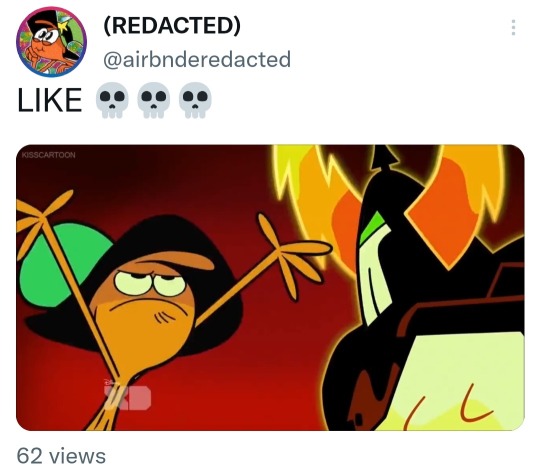
I'm tired of this comedic goldmine being slept on!!!!!
#Wander Over Yonder#Wander#Lord Dominator#woy#savewoy#mine#LIKE FR /yes/ there's a lottt of angst potential when it comes to focusing on Dominator#and that is all Very cool‚ but when it's time to be Silly (which I know everybody in the fandom loves)#w h y must we ignore this... the potential hilarity is amazingg...#..........ALSO DON'T EVEN GET ME STARTED ON HOW MUCH MORE INTERESTING THIS MAKES THE STATUS QUO CHANGES OF S2#AND HOW MANY FASCINATING LAYERS THIS ADDS TO WANDER'S CHARACTER#AND WHAT IT SAYS ABOUT THE LESSONS BEING PRESENTED IN THE SHOW AND WHERE THINGS COULD'VE GONE FROM THAT IN S3‚ AND—#AOAUHGHHHH!!! ANYWAY!!!! This is seriously one of THE most interesting things that S2 brings to the table#AND IT'S INSANE THAT NOBODY??? PAYS IT ANY MIND????#WHY DO SM PEOPLE SWAP THIS IN FOR 'and then Wander p much treats her exactly the same as he does all other villains hehe silly' HE DOESN'T??#THE FACT THAT HE VERY MUCH DOES //NOT// IS WHAT MAKES IT A MILLION TIMES FUNNIER/COOLER/MORE INTRIGUING WHEN HE *DOES* DO THAT!#also the fact that he doesn't like a single thing about her says a LOT about how (excessively) selfless he is in wanting to befriend her#but i could go on for /pages/ about THAT and all things related to it and aoauighbgbh!!#it's all so cool and fun and interesting THIS SHOW IS SO FUN & COOL & INTERESTING I JUST! IT'S A HUGE SHAME WHEN ANY PART OF IT'S SLEPT ON!!#AND THIS ONEE LITTLEE YET P IMPORTANT DETAIL GIVES US SO MUCH IRT FUNNIE FANWORK FODDER AND CHARACTER ANALYSIS AND THEMATIC ANALYSIS AND YEA#anyway i went a bit too insane in the tags. i really just wanted to focus on how funny this shit is#and how i wish the fandom made use of all that potential for comedy gold ewopadyhands#angy wander funny#Everything abt him makes all of this inherently /hilarious/#💀💀💀💀💀💀
226 notes
·
View notes
Text
Just Two Sad Roommates
Corpse Husband x Reader(Female)
Warnings: Swearing (maybe)
Genre: Angst, Fluff
Summary: The power of medieval tavern music gets put to the test when Corpse’s roommate is having a rough day. SPOILER ALERT: it’s more powerful than anyone could assume.
Requested by Anon. You know who you are 😊😋 Wish I could tag you, I loved this idea so much and had such a fun time writing it. Hope you enjoy it just as much 🥰
The last twenty four hours haven’t been so great.
Last night I had a huge fight with my boyfriend over his flirty messages with several girls. It was not just witty banter, it was way more and way more hurtful to me. He obviously denied it and defended himself, at least in the beginning of the argument. Then he took on the accusatory stance, pointing fingers at me for living with another guy. That had me absolutely fuming. Not only was his statement fabricated and literally made up on the spot, but he also used some seriously horrible insults for him. I was having non of it. Corpse is a really great roommate, sweet guy and overall amazing person. I haven’t once argued with him since we’ve started living together. We’re actually quite good friends. So hearing my asshole boyfriend call him all those names was more than enough to chase him out of the apartment. Thankfully, Corpse wasn’t home to hear all that. He rarely leaves the apartment but by some miracle this was the time he was absent.
Then this morning my mom called me to have a chat. It started off decently enough but it only remained that way for so long. It didn’t take her long to start criticizing each and every element of my existence. From my job, my boyfriend, my living arrangement, the career I’ve decided to pursue, the fact I moved to a different state, my paycheck that’s lower than her friend’s daughter’s...…..You get the point.
Now I’m sitting here, contemplating what the two years I’ve been in a relationship with Marcus mean to me. I guess it is just like a phone call from my mother - starts off nice but slowly deteriorates. All things follow this pattern in my life, apparently. And just like the phone calls, I’ve considered ending things between me and him many times but never actually decided on it. Until now. The last part of this decision is executing it, which doesn’t look very promising. My thumbs are frozen, hovering over the keyboard.
I take a second to take a look at my life from a third person point of view, like an out of body experience. I am wrapped in a blanket, huddled on the couch like a burrito with a face. A really sad burrito with a face. I have a job where I work as much as three highly ranked workers and get paid a little over a secretary’s paycheck. I’m in a constant state of exhaustion and disinterest. I often forget I’m human and just assume I can live like a cactus - no food, no water. I have a boyfriend that’s cheating on me and most likely has been for quite some time now. And we’ve been dating for two fucking years. Man, that must be the longest cheat streak in history. Who knows with how many girls as well. And I still have trouble deciding weather to break up with him or not. Actually no, scratch that, I have already decided, but it feel so unnatural and so out of character that my body refuses to complete the task of delivering the final blow to the structure of this relationship which was already weak to begin with.
And it only got weaker when I started catching feelings for another guy. I know, I know, I’m a bad person for that, but I was never planning to act on those feelings. They have always just...lingered, loomed over me. They got stronger and stronger every time Marcus and I would fight, as though they were laughing at my mock of a relationship.
Speaking of laughter, I hear my roommate laughing in his recording room. I gave him the spare room for his recording equipment for a cheap add to his rent fee and it’s probably the second best decision I’ve ever made - first being picking him to be my roommate. He was among the first to reply to my online add and appeared the least sketchy over the phone. More hypnotizing if I’m honest. He could’ve told me he was a hitman and I wouldn’t have batted an eye, handing the keys to his room and the apartment without a second thought. All he had to do was keep talking. Again, SUE ME.
“Fuck, I’m so fucking pathetic!“ I drop my phone when all the strings inside me snap, releasing the sobs and tears I’ve been holding back for so long.
I bring my knees up to my chest, hiding my head in between them, desperately trying to shield myself from the plane crash that is my life at the moment. Crying makes me feel even sadder and more miserable but I have nothing left to do to get all the crap that’s piled up inside me out.
I’m on the verge of falling asleep, the tears have dried and the sobs have died somewhere in my chest, when I hear what sounds like music straight from Robin Hood’s time.
Holy shit, I’ve lost it
I lift my head from in-between my knees, looking around the living room for the source of the jolly, lighthearted tune which despite all the heaviness of my self-loathing makes me feel like the main character in an medieval adventure. Wait...Holy crap, it’s that medieval adventure, Robin Hood-ass music I hear from Corpse’s room!
I whip around to face the entrance from to the hallway where I see an arm sticking out, holding a phone which is where the music is coming from.
“Corpse?“ I call out to him in a questioning manner, shifting to a sitting position with my blanket kicked off of me and bunched up next to me.
“I can’t tell if you’re angry or sad...or both. Didn’t want to get attacked upon entering the room.“ I see the right side of his face peek out as well.
I break out into laughter, covering my mouth with one hand, “You’re such a dork.”
He takes this as a sign to come in, pausing the music as he does so. “What’s wrong?”
My laugh stops but a smile remains on my face as I look at him. He just has that effect on me. “A lot. What’s going on with you?”
He shrugs his shoulders, plopping down on the couch, “The usual, streaming Among Us. You should play with me and my friends some time.”
I scoff, “I can pull of a lie no problem. Maybe I really should.” I don’t actually consider it, it’s just funny to think about.
I have never watched any of Corpse’s content. Not his scary story videos, not his streams, not his animated compilations. Just his songs. And let me tell you...they are hella good. One song and I was hooked.
“Hey, I have a question.“ I tilt my head to look at him, “What’s with you and your love for medieval adventure music?“
“Medieval tavern music, and it’s not really love.“ He shakes his head with this dopey grin that is just. so. adorable. “More like a coping mechanism. Tell me, did you feel less sad I played it for you?“
I stop and think for a second. “Yeah, I think so.”
“Point made.“ He declares, leaving me to nod in amusement. “Now, tell me what that ‘a lot’ is.“
So, I do. I tell him everything, from how my boyfriend is cheating on me to how my mother thinks I’m a complete failure. He listens carefully, paying close attention to everything I’m saying. I catch myself laughing a few times while I retell the recent upsetting events.
Must be that music.
“So, you broke up?“ He asks once I end my monologue with a sigh
I shake my head disappointedly, “Not yet. I still haven’t pulled the plug. I don’t know what to say.”
He holds out his hand to me, “May I be of assistance?”
I look at his hand then at him and contemplate for only a second before deciding ‘what the hell’ and handing over my phone after unlocking it. The screen displays my boyfriend’s chat so Corpse just types away what he has in mind. Before pressing ‘send’, he hands the phone back to me. “Proofread it.”
‘Dear Marcus, this is one of your girlfriends speaking. Yes, one of them. You think I’m not onto what you’re doing, you little shit? Well, to your dismay, I am. And so, I discontinue this relation between us. That word might have been too long for your IQ so let me rephrase: We are over. Finished. Hope your other girlfriends wake up too, unless they are already in the know, of course. Love, but really hate, Y/N‘
I was never aware this level of sass even existed.
I add a smiling emoji and send the message, sighing in relief. “I can check that off my to-do list now.”
We both lean back on the couch, looking up at the ceiling. A moment of comfortable silence takes over, leaving us both wandering in our own heads.
“Hey, um, I wanted to do this when I first moved in, but then I met your boyfriend and I took the hint. Now that you’re single, would you want to...“ he sounds a bit uncertain but continues regardless, “It’s ridiculous cause I don’t really like the idea of going out, but maybe we could order take-out...“
“Are you circling around asking me on an at-home date?“ I am surprised by how unbothered I manage to sound while I’m squealing on the inside. It’s fascinating how quickly a person can flip someone’s day around. Turns out it wasn’t the music at all. It was him that had the positive effect on mine.
Out of the corner of my eye I catch his face turn red and have to contain my laughter. The grin can’t be tamed though, especially not when he says, “Yes.”
Internally squealing, I launch myself from the couch, standing up straight in front of him. “Thai. My usual order is on the sticky note on the fridge. But first,” I offer him my hand, “I need to find out if a person can even dance to that ridiculous music.” At his amusement, my grin widens, “May I have this dance?”
He laughs that adorable laugh of his I’ve only heard through the layer of a wooden door. It’s even cuter when there’s nothing between me and its source. The source is cute too, not gonna lie.
With a shake of his head which is most likely disbelief, he takes the hand I’ve offered him, saying: “And you call me a dork.”
@susceptible-but-siriusexual @simonsbluee @save-the-sky @hacker-ghost @itsminniekat @bi-andready-tocry @imtiredaffff @jazzkaurtheglorious @hereforbeebo @fandomgirl17 @chrysanthykios @maehemscorpyus @loraleiix @letsloveimagines @annshit @i-cant-choose-a-username-help @enigmaticmaze
#corpse husband#corpse#husband#corpsehusband#corpse simp#corpse husband fanfic#corpse music#corpse husband x reader#corpse husband x y/n#corpse husband fluff#corpse husband fanficiton#fluff#angst#love#romance#corpse x reader#corpse x y/n#x reader#reader#reader in#x y/n#requests open#request
1K notes
·
View notes
Note
Since you want asks, PLSSSE I want your Utena TH0ughts. WHAT is your favourite black rose episode? actually how do you feel about the black rose arc in GENERAL
black rose arc, black rose arc, oh black rose arc!!! by you adding how do i feel about the arc in general you are unleashed me to make a long post giving my very disorganized thoughts about this arc.
a couple of people call it a filler arc? i guess technically it is because it does not directly contribute to the main storyline and it wasn't in the manga and also the ending of the arc sort of makes it so the whole arc kind of didn't happen???
but also i think if a person labeled it as a filler arc they are kind of missing the point?? even if it doesn't contribute to the main plot (which it absolutely DOES but i'll get to that) it adds so much nuance to the characters of utena.
you get to see side characters and how they tick!! some of which like kozue and shiori become very important later as they become miki and ruka's rose brides in the akio arc! (side note : what was up with ruka he just kind of showed up and disappeared lmaooo)
also, it adds to akio! (tw warning for only the next paragraph, i'm talking about akio so you can except me talking about grooming and abuse)
not only is this where akio is introduced, but he is always so omnipresent. it was ... honestly really terrifying to see how chill he acts with utena here. of course the real grooming begins in the akio arc but you can see how he starts here. how he kind of builds himself as anthy's cool older brother that utena can trust and ask for advice for... but we the audience know that he CANNOT be trusted as even know we see him being shady af in the background. i really feel like if we skipped straight from the first arc to akio arc a lot of the creepiness of akio would not have been realized because of ... just how NORMAL he akio acts to utena. he's charming, he's smart, and he overall is somebody utena SHOULD be able to trust bc we should all be able to trust an immediate family member of a best friend , but of course the world doesn't really work that way. anyway akio tangent over because BOOOOOO akio (he honestly terrifies me so much because of how many predators like that exist and you can meet without realizing their intentions)
BACK TO BLACK ROSE ARC
one of the main reasons i feel like this isn't a filler arc, at least not in the traditional sense of the phrase, is because it builds a lot character relationships. something that i didn't like when i first watched revolutionary girl utena but now is one of my FAVORITE things is that for a while we don't really get a straight forward utena/anthy episode. because their relationship doesn't need to build in an episode, it just slowly builds over time. we just see these two causally existing and they just start to trust each other.
in the akio arc we get to see just how close utena/anthy have gotten over the series because of their late night conversations. like how if the black rose arc didn't exist akio wouldn't have been as impactful, if the black rose arc didn't exist it would feel more sudden how close utena/anthy have grown imo.
this arc adds a lot to the world as well. as long as the students stay inside of school they will not grow. dead people wander the halls thinking that they are still alive. these two facts contribute a lot to utena theorizing and analysis (mainly, the ideas that ohtori exists within a plain of frozen time literally because of anthy's magic and metaphorically because the cast is very cozy in their coffin) and i could not thank this arc for that enough. not only are these very cool ideas that may or may not have inspired elements in my own story (i can neither confirm or deny that one of my oc story is heavily inspired by utena) but they just add so many layers!
this arc also felt necessary because of the new duelists??? if we went straight from the first arc to the akio arc then it would've kinda gotten very tiring to see the student council constantly duel and lose to utena (with the exception of touga's sole victory to utena in the first arc before she duels him again and wins) but these new duelists possessed by the black rose are very interesting!
if i did have to make a compliant about this arc, though, i will say that at times the stories felt very disconnected to each other. while it was very funny for utena to not even know who keiko was when she dueled her, it would've been nice if sometimes the arc of the black rose duelist intertwined more with utena. as the arc goes on, the student council is on alert and is trying to figure out where the black rose is coming from, but they never really try to ask utena about it and utena never really tries to get involved? she just is chill until she gets the note to go to the duel arena to fight the black rose duelist. i don't really have a solution on how to fix this? maybe have the student council member that the black rose duelist takes the sword from be more involved? idk.
the villain of this arc mikage also really fascinates me??? i... really like him??? but not even as a villain ... i just really pity him. the realization he has in his duel with utena that everything he has been doing is for nothing because mamiya is already dead .. that always really hit me? the horror in his voice when he starts to recall the truth in his false memories.... for some reason, this is one of the most terrifying parts of the show for me. the realization that something you were doing, something you were doing that might've been awful but you were doing it because of somebody you care about deeply and love, it was all for nought. how much time he has wasted...
even before his duel with utena, there's this moment when after he got punched by utena he says something like "if she hadn't seen my duelist ring and challenged me to a duel, she could've killed me" or something like that, he's just so pathetic and i feel very bad for him but at the same time am too disconnected to him to truly feel empathy for him... that's some TOP TIER shit
overall, this part of the show is one of my favorites. the only part i like more is the last few episodes because it makes me very emotional.
NOW FOR THE SPECIFICS
favorite black rose duelist: honestly? wakaba. the girl deserves it this is stress relief for her. not only is this duel very emotional as i don't think we've ever seen utena refuse to duel somebody (at least not in the way that she does in this episode) but just the SHEER emotion.
i'm a real sucker for fighting the person you care about the most which is why the dark signer arc in yugioh 5ds is the best yugioh arc and this just really takes the cake in this arc. utena always shows concern for the black rose duelist because they are clearly people in pain who were not able to properly duel with their grief which let mikage manipulate them, but it's taken to a new level here.
the way that after the duel is completed, wakaba comes home to her empty dorm where saionji used to be but now isn't always gets me. she's just such a lonely girl and that's never really resolved for her. a lot of the other duelists have a optimist note to end on (kozue asking miki for a milkshake, shiori and juri saying hello to each other as they walk past, keiko being friends with nanami again, etc.) which is why the fact that wakaba is more alone now then she is ever... it is a feeling i can relate to an almost embarrassing amount.
favorite episode: COWBELL OF HAPPINESS, NANAMI TURNS INTO A COW-
ANTHY YOU GLORIOUS TROLL-
favorite episode that isn't cowbell of happiness: i'm very torn between the landscape scaped by kozue and thorns of death. shiori and kozue are both very interesting characters that i like a lot. but i'm going to go with thorns of death for now, as while i really like the landscape scaped by kozue, i think my preferred miki/kozue episode is their episode in the akio arc. meanwhile i like thorns of death way more than i liked whispers in the arc (mostly because i just do not really care that much for ruka, but azure paler than the sky was a banger and he was in that?) i just loved the feeling of seeing shiori the girl juri loves so much and juri's reaction to seeing her. the way my heart was wrenched when black rose shiori mocks juri... it really did hit different. but the hopeful ending did make me feel a lot better. i do like the way that juri out of all the student council members is the one closest to self actualization and this really sets that up even if there is still a bumpy road until then.
honorary mention: the boys of the black rose and kanae as a black rose duelist are both really great. i feel like if this wasn't the arc opener it would've had more room to stretch its legs and show how horrific it could've been. kanae is a girl i feel really bad about and similar to wakaba, i don't really think her episode was a very optimistic ending for her especially since akio probably killed her later in the show?
honestly the minute akip appeared on screen, engaged to a girl who HASN'T EVEN GRADUATED and is also emotionally manipulating her so much and having his little sister manipulate her too... throw the whole man away
tl;dr - the black rose arc is very good and i like it a lot, the ending of the arc really fucks me up, somebody give mikage & all the black rose duelists therapy, throw akio in the garbage, and this show probably exists in some sort of time loop / frozen time space as a metaphor for the whole coffin thing but you can probbaly find people smarter than me talking about that.
oh and go rewatch cowbell of happiness it's great
#this is what i do at 4 am#i started writing this at like 3 45 am and it is now 4 25 am :)#worth it#hope you like my shitty analysis and thoughts !!! i enjoyed writing it thoruugly#revolutionary girl utena#asks
19 notes
·
View notes
Text
Desert island books (pt. 2)
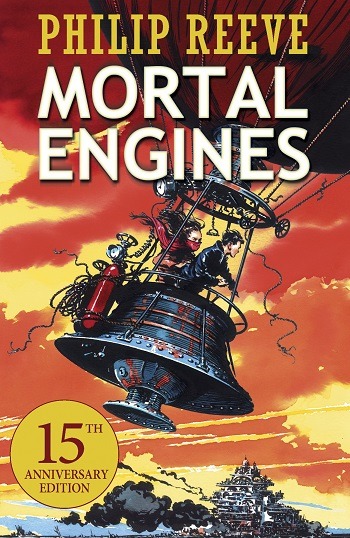
Mortal Engines Quartet
(Mortal Engines, Predator’s Gold, Infernal Devices, A Darkling Plain)
Author: Philip Reeve
Published: 2001
I was given the second book – Predator’s Gold – one Christmas by my grandparents, who had no idea it belonged to a series. Neither did I, until I tried to read it! I asked for the first book, and soon after the third & fourth ones. Needless to say, they turned out to be an inspired gift choice!
The backdrop to the story is a post-apocalyptic world where most remaining cities are now mobilized on giant caterpillar tracks (think wheeled wedding cakes), fighting and scrambling for resources – namely other smaller cities. Unassuming Tom Natsworthy gets swept up in an adventure that spans four books, multiple continents, and two generations of his family.
It’s been a while since I read them, but I vividly remember thinking “these would make cracking films!” Fast-forward to 2018 and my wish was granted – by Peter Jackson, no less – but one trailer was enough to know it wasn’t going to live up to my expectations.
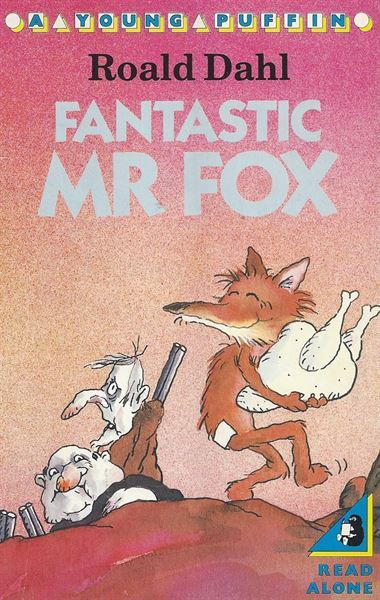
Fantastic Mr Fox
Author: Roald Dahl
Published: 1970
I devoured Roald Dahl’s back catalogue as a kid, so it is only right he is represented in this list. I could have picked any number of his endearing, imaginative, and slightly twisted children’s books, but I think F.M.F. just wins out.
Mr Fox is a dab hand at stealing his family’s dinner from farmers Boggis, Bunce & Bean, until the three men decide that enough is enough, and commit to catching Mr Fox once and for all. This pushes the Fox family (and their neighbours) to the edge of starvation, and it falls to Mr Fox to come up with a Fantastic plan to bypass the dangers awaiting them outside.
I always find it interesting how certain art forms can make you root for someone you normally wouldn’t – Disney films are a good example of this – such as a thieving, sneaky fox wandering into chicken coops and helping themselves night after night!
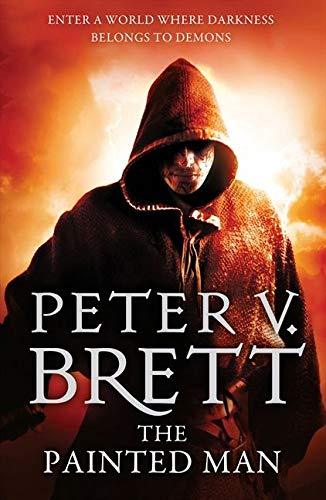
The Demon Cycle
(The Painted Man, The Desert Spear, The Daylight War, The Skull Throne, The Core)
Author: Peter V. Brett
Published: 2008
I do love a fantasy series. In this world, demons rise up from the earth’s core every night, and remorselessly chow down on anyone who isn’t sufficiently protected by magic wards that must be carefully painted in place as barriers. The story is told from the perspectives of several main characters, as the search for a lasting solution to this problem gathers pace.
Each book adds further layers, to both the characters and the story. My favourite example is that in subsequent books, a couple more characters’ backgrounds are brought to light, as well as their own involvement in earlier moments from the series. This shines some light on who they are, and provides a lot of “ah, now I see” moments when reading about a previous event from their viewpoint.
The character detail is also a weak spot, however. Mostly because a large amount of them have very similar names, and I sometimes got confused. I often had to stop and remind myself who I was reading about, which killed the flow of the story. I felt like I should have had a notebook beside me to jot down the family trees – how many names do you need beginning with ‘A’?!
I have only read the series once as it was a fairly recent find, but for me there was a bit of a drop-off in the final two books. In my opinion, the longer a series goes, the harder it becomes to stick the landing, given all the rules/connections you’ve set in place. I got a bit fatigued trying to remember who everyone was and what their motives were, and I wasn’t wholly satisfied by some of the protagonists’ decision-making towards the end. However, the first three books are incredibly strong, and I found the majority of characters fascinating – particularly Arlen, who was generally the character I missed the most when he disappeared for a few chapters.
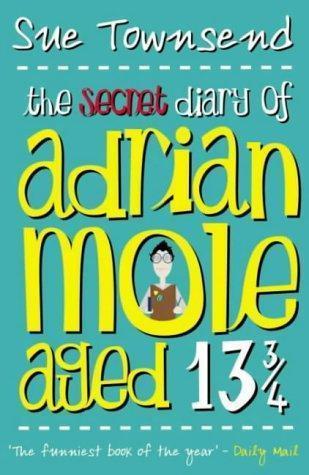
The Secret Diary of Adrian Mole, Aged 13 ¾
Author: Sue Townsend
Published: 1982
My mum recommended this one to me, so let it be known she does sometimes get it right! This is the first entry in a long-standing series of books/diaries that document the events in Adrian’s life, but the first two books (this and The Growing Pains of Adrian Mole) were from his teenage years, and the ones I found most interesting.
The book is presented as a diary, with Adrian noting down the day’s events and giving his penny’s worth. The main source of amusement is that he is often blissfully unaware of what is really going on – which in fairness you might expect from a 13 ¾ -year old.
Ironically, I think I was of similar age when I first read this, and there was a lot that went over my head, too! I still found it funny, but subsequent read-throughs have made me laugh harder, when I realised what the actual joke was! It’s a bit like watching a Pixar film years later and realising those fish weren’t so innocent after all…
#book#desert island books#read on Macduff#Mortal Engines#Fantastic Mr Fox#The Demon Cycle#The Painted Man#The Secret Diary of Adrian Mole#aged 13 3/4
2 notes
·
View notes
Video
youtube
True Romance: Saoirse Ronan and Timothée Chalamet on reuniting for Little Women

They may be posing in an airy lower Manhattan studio, but Timothée Chalamet and Saoirse Ronan have a way of making you feel right at home. “I made a little playlist this morning,” Chalamet announces to the room. He syncs up his cell phone to the sound system, his boyish grin widening as Marvin Gaye’s “What’s Going On” starts blaring. He returns to the camera, which snaps him and Ronan at a furious pace.
It’s their first joint cover shoot. He’s wearing a shimmery striped shirt with high-waist trousers; she’s rocking a shirtdress, fishnet stockings, and clear stilettos. He keeps cracking her up; she musses his hair with doting affection. During a break that follows, he wanders, gripping a paper bag stuffed with assorted bagels — from Tompkins Square Bagels, which Chalamet, a lifelong New Yorker, insists are the best in the city — and offering one to anyone in his path. He sings and dances — very Elio-in-the-town-square-like — to Bob Dylan’s “Tombstone Blues.” He creeps behind a distracted Ronan before spooking her with a yelp. “I didn’t even know you were there!” she exclaims, reddening from the fright but with a smile so lovingly at ease, you sense she’s used to the prank.
They’ve known each other, after all, for some time. About three years ago, Ronan, now 25, and Chalamet, 23, met filming Lady Bird, Greta Gerwig’s solo directorial debut, in which Ronan’s irrepressible heroine (briefly) romances Chalamet’s douchey amateur musician. They reunited with Gerwig last year, on the heels of Lady Bird’s Oscar-nominated success, for a bigger undertaking: a remake of the oft-remade Little Women (Dec. 25). Ronan and Chalamet slipped into the roles of tomboyish Jo March and buoyant Theodore “Laurie” Laurence, best friends who ultimately break each other’s hearts. Their courtship ranks among American culture’s oldest tales of unrequited love — made indelible by Katharine Hepburn and Douglass Montgomery, Winona Ryder and Christian Bale, and so many others — yet finds, in the hands of two of the most compelling actors of their generation, galvanizing new life.
That goes, in fact, for the whole of Gerwig’s Little Women. Her version certainly contains the snow-globe coziness of treasured adaptations past, but also carries a fizzy emotional authenticity and attention to detail. The film is remarkably lived-in, too: This take on Louisa May Alcott’s 1868 novel, which follows Jo and her three sisters pre– and post–American Civil War, feels plucked straight from the text in the best way, with siblings fighting like siblings, love and loss and hope and pain vividly experienced on screen.

Ronan and Chalamet’s charming big sister–little brother dynamic is not unlike the one that Jo and Laurie share in Little Women. Watch the actors play off one another, and the film’s tender realism clarifies itself: Their on-camera intimacy is just as palpable behind the scenes. Indeed, after shooting Lady Bird for a few weeks, the pair hung out regularly over the next year, making the awards-circuit rounds and scoring lead-acting Oscar nominations — Ronan for Lady Bird, Chalamet for Call Me by Your Name — before swiftly signing on to Little Women. In advance of filming in Concord, Mass. (the actual setting of the book), Gerwig and producer Amy Pascal gathered the large production’s cast and crew for rehearsals at a house just outside the town. For Ronan and Chalamet, the contrast between this and their early Lady Bird days was immense. “I felt very prideful… about how big it had gotten, how many people were there,” Chalamet recounts. “On Lady Bird it was, like, 25 people hanging out in a house!”
They fell back into each other’s rhythms instantly. “He keeps me on my toes — I’m never quite sure what he’s going to do next,” Ronan says. “That only progressed more and grew more. It helped that we do have a very natural rapport with each other…. These two characters physically need to be very comfortable with one another. They’re literally intertwined for half the film.” Chalamet adds: “In the least clichéd way possible, it really doesn’t feel like [I’m] acting sometimes [with her].”
Chalamet credits Gerwig, too, for establishing a playful, comfortable atmosphere. He thinks back to his first day of rehearsal: He reunited with Ronan. He introduced himself to Emma Watson (who plays the eldest March sister, Meg). He was guided into a third-floor conference room of a “random building” where, “all of a sudden, there was a full dance class going on.” He recalls fondly: “Everyone breaks down and becomes a little kid. This job is so trippy in that regard — you want to be serious, you want to be professional, and then it’s almost best when you’re able to be 12 years old. When it’s someone you’re actually friends with, it makes it easier.”
Ronan smirks, gearing up for a jab: “We’re not friends!” Delighted, Chalamet keeps the bit going. “We’re not friends,” he says, solemnly. For once, they’re not very convincing.

Greta Gerwig doesn’t remember a time before she knew Jo March. “[Little Women] was very much part of who I always was,” the writer-director, 36, says. “It was something my mother read to me when I was growing up. It’s been with me for a very long time.”
She joined Sony Pictures’ new Little Women adaptation when she was hired to write the script in 2016. Once Lady Bird bowed the next year, she emerged as a candidate to direct the film. “Greta had a very specific, energized, kind of punk-rock, Shakespearean take on this story,” Pascal says. “She came in and had a meeting with all of us and said, ‘I know this has been done before, but nobody can do it but me.’” She got the gig.
In her approach, Gerwig drew on her lifelong relationship with Little Women; beyond childhood, she discovered new, complex layers to the novel, and in turn to Alcott’s legacy. “As a girl, my heroine was Jo March, and as a grown lady, my heroine is Louisa May Alcott,” she says. It’s perhaps why Gerwig’s Little Women feels like the most adult — and modern — version of the story that’s reached the screen to date. The movie begins with the March sisters in adulthood — typically where the narrative’s second half begins — and unfolds like a memory play, shifting back and forth between that present-day frame and extended flashbacks to the childhood scenes etched in the American literary canon.
In that, Gerwig finds fascinating, fresh areas of exploration regarding women’s lives: the choices society forces them to make, the beauty and struggles of artistic pursuit, the consequences of rebellion. Jo’s journey as a writer anchors Gerwig’s direction; tempestuous Amy (Florence Pugh) gets more of a spotlight as she matures as a painter (and Laurie’s eventual wife); and Meg is realized with newfound nuance: “We felt it was important to show Meg juggling all her roles — a mother, a wife, a sister — whilst also celebrating her dreams, despite them being different to those of her sisters,” says Watson. But Gerwig doesn’t see herself as reinventing the wheel. “A lot of the lines in the film are taken right from the book,” she explains. “When Amy says, ‘I want to be great or nothing’ — she says that in the book! I don’t think we remember that, but she does say it.” Gerwig also loves one line spoken by the sisters’ mother, Marmee (Laura Dern), also revived in this version: “I’m angry almost every single day.”

Gerwig compiled a “bible” filled with cultural references: to Whistler tableaux of family life, to David Bowie–Jean Seberg hairdos that inspire the look of Jo’s mid-film cut, to Alcott family letters. “I wanted it to be footnote-able,” Gerwig says. “I wanted to point to it and say, ‘This is where this is from.’” She considers Alcott’s text sacred: “I wanted to treat the text as something that could be made fresh by great acting.”
Beyond those charged but less quoted Little Women lines are its famous ones — throw-pillow staples like Jo’s “Christmas won’t be Christmas without any presents,” that no adaptation is complete without. The actors rehearsed these “almost like a song,” pushing to move through them with a rapid musicality. “We [read] the book out loud,” says Dern. Gerwig expected the script’s words to be memorized precisely. “I knew I wanted them to get this cadence that felt sparkly and slightly irreverent,” she says. “I wanted to make them move at the speed of light.”
She poured the same love into iconic scenes, like Jo and Laurie’s ebullient dance that follows their first meeting. Here it goes on longer — and more vibrantly — than in any previous iteration. (Ronan says they filmed it at 3 a.m., to boot, adding, “We must have done it, like, 30 times.”) Then there’s the devastating moment when Laurie asks Jo to marry him and she rejects his proposal. Gerwig tasked the two actors to unleash here. “Emotions just bubble over,” Ronan says. “[Greta] just let us go with it, wherever it went, from take to take. What I loved about that scene is that every take would be different emotionally. It didn’t have the same trajectory.
“The two of us, it’s a relationship I have with no other director,” Ronan continues. “She makes me feel like I can try anything.”
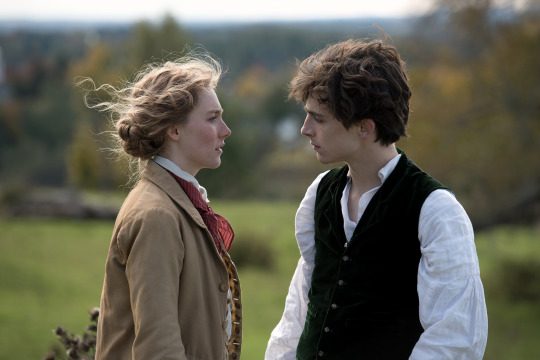
As Ronan and Chalamet emerge from their photo-studio dressing area in impossibly chic new ensembles — she donning a form-fitting knit sweater, he a silky, ruffled top — their creative energy fills the space. They try out different poses, debating concepts and ideas with each other on the fly; at one point he wraps his arms around her waist, and she quips to no one in particular, “We’re expecting our first.” Camera snap.
They’re modeling a new brand of movie stardom — pursuing projects with a point of view, adamantly being themselves in the public eye, subverting gender norms. Their androgynous fashion performance here reflects their wardrobe shake-ups in Little Women: Gerwig and Oscar-winning costumer Jacqueline Durran (Anna Karenina) had the two actors swapping clothes throughout filming, to reinforce the masculine-feminine fluidity between Jo and Laurie. “They are two halves,” as Pascal puts it. “These are really bold characters that are really different than you’ve seen them before.”
And just as Gerwig expressed a need to direct Little Women, Ronan knew in her bones she needed to play Jo. She’d first encountered the story via the 1994 film when she was 11, and later read the book, feeling an immediate kinship with the young woman she’d come to portray. “When Louisa describes Jo, it felt like someone describing me physically: sort of gangly and stubborn and very straightforward, and went for what she wanted.” At an event for Lady Bird, she — in a very Jo kind of way — just “went at it” by approaching Gerwig. “I said, ‘So I want to be in Little Women, but only if I’m playing Jo.’” (Chalamet, for his part, was asked by Gerwig, “Hey, want to do another movie?” He responded: “Yes. Yes, please.”)
Over months of living in Concord with her castmates, Ronan discovered new depths within herself: “Jo’s ethos is ‘Everything everyone else is doing, I’m going to do the opposite.’ [I had] to try things that I’d never tried before. Be a bit messier with a performance.” Gerwig set up etiquette lessons for the cast; whatever the instructor said (“Don’t shake hands! Don’t gesticulate with your arms!”), Ronan made sure to ignore it. She speaks now of this as freeing, even transformative. “I felt like I had tapped into something I’d never gotten the opportunity to tap into before, or I just didn’t have the guts to tap into myself,” she says. “Finding that was just amazing.”
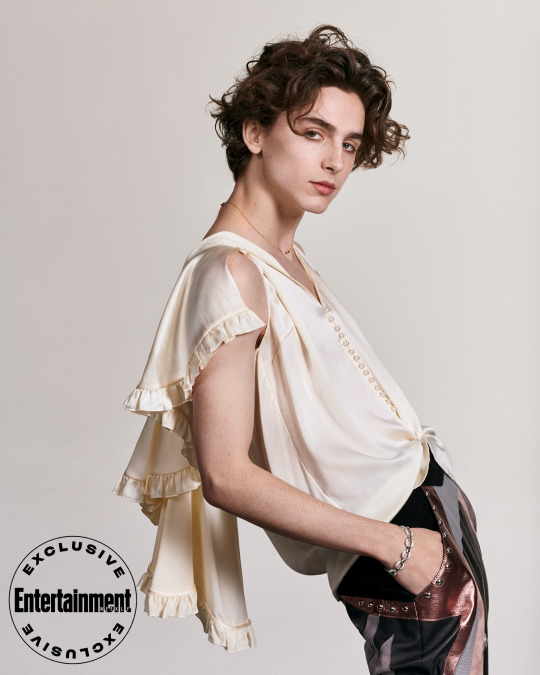
Shortly after wrapping Little Women, she filmed Wes Anderson’s next film, The French Dispatch — marking her third time costarring with Chalamet, who plays a central role. As for now? Ronan is taking a little break. “I’ll wait for the right thing to come along,” she says. “It’s lovely to be in a position at this moment where I can wait for the absolute right thing.” Same goes for Chalamet — he shot Netflix’s The King (out Oct. 11) right before Little Women and just completed production on Denis Villeneuve’s Dune adaptation. “It’s the first time in almost two years I’ve gotten a breath, so I’m savoring it.”
It’s been a long day. They’re back in comfy clothes; Ronan is taking a late lunch. It feels like both actors — as another whirlwind of acclaim and press and romance-shipping awaits — are at a kind of peace, exhausted but satisfyingly so. Little Women is the biggest movie either has done to date; more attention, as they inhabit such revered characters, is sure to follow. “I just haven’t thought about it that way,” Ronan admits. “Maybe because it’s just Greta — even though it’s on a much bigger scale, she wanted it to feel like Lady Bird.”
Ronan understands the timeless power of Little Women, of course: “It’s as important to tell Little Women right now as it would be at any point in our lifetime.” She points to this pop culture climate of “celebrating female friendships and sisterhood,” and continues, “It’s a story that’s full of love. That will always be relevant.”
She turns toward Chalamet, and you realize the love they brought to Alcott’s classic is what first blossomed between them on Lady Bird. “I love that in Lady Bird, you broke my heart,” she says to him softly. “In Little Women, I got to break your heart.” (Chalamet, ever the goofball, finds an obvious opening: “Yes, that’s true. Then I married your sister. Ha, ha, ha!”)

If this all sounds a little idyllic, well, neither actor — nor Gerwig, nor Pascal, nor the rest of the cast — can do much to convince you otherwise. Shifting back to Little Women’s timelessness, and reflecting on Ronan’s comments about it, Chalamet says, “I don’t know how to add to that.” Instead he turns back to his costar, his expression suddenly sincere, filled with gratitude. “But if I can add one little dose of information,” he says with a nervous laugh. “And not just because she’s sitting next to me.” He credits Ronan with bringing that “timeless energy.” He says “thank God” they were able to make the movie. “It’s so rare with Saoirse — I’m so f—ing grateful to get to work with her,” he says. “Whatever book I write for myself when I’m older, to look back on —” He stops himself. “Well, this is a bigger conversation.”
But Ronan, chuckling, doesn’t let him off the hook. “Will I have, like, a chapter?” And Chalamet laughs — another opening, another chance to act with his greatest scene partner, to see what journey of creation and discovery they’ll go on next. “A chapter of Saoirse,” he says.
At this rate, one chapter won’t suffice.
342 notes
·
View notes
Text
Prompt: Undertaker
Fandom: Winx
Characters: The Trix
Song Rec: Nox Arcana - Dark Surrender
Summary: Icy, Darcy, and Stormy run a funeral home.
There is Cloud Tower and its spiraling spires, well known and well esteemed. If one wanted to wander through the forest some ways they would happen upon a smaller building. A structure made of grey stone with iron-cast windows and a thick layer of creeping ivy and thorned briars. A wooden sign swinging in the breeze would tell them that they have arrived at Three Moon Funeral Home. And if they stepped inside they would be greeted by a large iron chandelier with a helping of onyx, black diamond, and obsidian. The place is lit only by candles and wall lanterns containing more candles rather than bulbs. There is a generous helping of dust and cobwebs--particularly on the bookshelves and decorative coffee tables, but a person could reasonably conclude that those have been deliberately left untouched because the standard tables and the chairs are pristine clean. The walls are lined with dreary tapestries some with ravens and others with bats. The carpets are an elegant blue-black damask.
Most people who enter Three Moon leave upon entry. The air of foreboding is quite strong. But it is also an illusion.
It is a love of the macabre and an appreciation of the beauty of and in death that makes Three Moon so esteemed. The fascination with finality that drives Icy to put passion into the embalming process and the eventual funeral rite. It is this same fascination that drives Darcy to create the aesthetics and plan the funeral rites. And it is the same fascination that compels stormy to upkeep the graveyard and protect it.
Together they have Magix’s first witch-run funeral home.
It isn’t a profession that she has thought of for herself, at least not as much as Darcy has, but it suits her more than fine and she finds that it fills her time well. It is an art in its own right and the body on the table is, in some sense, a blank canvas.
Death isn’t always pretty to view, not naturally. It is her job to make it so. Down the hall, she can hear Darcy discussing which caskets will look good coupled with which floral arrangements. And outside, she imagines that Stormy is readying the grave for digging.
Icy herself arranges her tools, she must make Aylin look nice again. She has already disinfected the body and reversed, to the best of her ability, the rigor mortis. The most grisly portion has been completed too; the tedious and painstaking task of removing and replacing bodily fluids.
First things first, she closes the eyes and makes sure they remain so with a thin layer of glue. She can’t imagine that many people would like to see loved ones open dead and glassy eyes. Neither can she imagine that they’d like to see the jaw drop open. So she carefully threads some suture string through the lower jaw and then through the gums and through parts of the nose before tying it together. It is another less pleasant task, but a necessary one. One that makes the wake a more pleasant experience.
The next part is easier to stomach. Aylin may be dead but she doesn’t have to look it. Icy combs her thick black hair and fashions it into a loose bun. Her parents had made mention that, that was how she had worn it to most celebrations. She could use magic but spells wear off so quickly and she feels as though it takes away authenticity, so she picks up a curling iron and one by one, ravels the loose curls around it.
She picks up Aylin’s hands and gives the nails a sleek layer of black polish, the sort that contains flecks of silver glitter to be caught under the light. And with just as much attention, Icy sets her hands back down. She begins adding foundation to the skin, particularly heavy in areas where the discoloration is the worst.
At the moment Aylin is a doll. If Icy has any skill, by the time she is finished, Aylin will practically be alive once more. She slowly spreads a helping of bright red lipstick over the girl’s once pretty lips and then adds a smoky haze to her eyelids. She is unsatisfied so she redoes the direction and style of the eyeliner and tries out a few more shades of eyeshadow before settling on the third shade. It compliments her hair well without bringing out the pallor that Icy is trying to hide. She emphasizes Aylin’s beauty mark.
She takes a step back, viewing the body from any angle she speculates that the family might. She decides that her work is satisfactory. Now all she has to do is wait for the family to hand her their choice in clothing and jewelry.
She hopes that they aren’t one of those who decide to switch up the outfit they’d initially shown her. She never cared for re-doing the makeup.
Icy turns the girls palm up and pulls out a tattoo gun.
This is her trademark. The thing that sets Three Moon apart from the other homes.
She calls Darcy and Stormy into the room. She passes the gun to Stormy and turns to Darcy, “whenever you’re ready.”
Darcy nods. She quietly sets out a circle of candles and insense, lighting each in turn. She closes her eyes and murmurs her incantations. All is still save for the flickering of the candles and it is so for a good while. And then there is a shift in the atmosphere. The candles seem to shift towards Aylin’s body. This holds out for a few moments and then the candles burn out leaving behind only faint trails of smoke.
Darcy opens her eyes. “Black Swallowtail.”
“What do they mean to her?” Stormy asks from her spot across the room where she has herself propped against the wall.
Darcy shrugged. “Most of them don’t tell me.”
“Do your part, Stormy.” Icy says.
If anything, Stormy’s job is the most important. She will mark the girl’s palms with protective and warding sigils. And at the center of them she will add the butterfly for a more personal level of protection. Her body will nor fall prey to attempts at necromancy. It won’t be easy to possess either.
“A safe journey to you, Aylin.” Icy murmurs in the tongue of elder witches.
“A safe journey.” Darcy and Stormy repeat.
And it is done. Done and ready for the wake to begin.
10 notes
·
View notes
Text
Creeped Out is a horror anthology series shown on CBBC in the UK and available on Netflix elsewhere. It’s an excellent show, fun for kids with loads of crossover appeal for adults. But the big entertainment sites tend not to cover it, and I haven't been able to find a definitive ranking of all the episodes anywhere. So I decided to create my own, because why not?! This list includes season 1 and season 2; I’ll add further episodes as they’re shown.
Before we get into this: there are some spoilers in here. I’ve tried to keep them to a minimum but sometimes, to describe what's good (or bad) about an episode, I need to discuss elements of the plot.
Every episode of Creeped Out, ranked from best to worst
1. ‘Slapstick’ (Season 1, Episode 1)
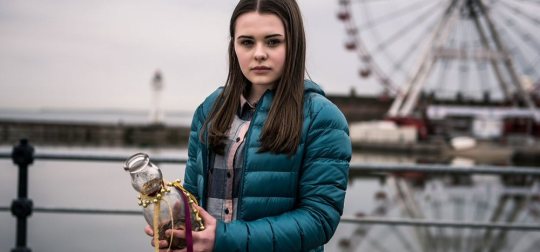
The first episode of a series is rarely the best, but Creeped Out bucks the trend—‘Slapstick’ hasn’t yet been bettered. It’s the perfect combination of cozy and creepy, with a quintessentially British setting (a seaside town complete with Punch & Judy shows), a puppet antagonist who’s somewhere between unnerving and amusing, and a relatable main character. Even the score is the best of the bunch: its sinister take on fairground music really adds to the atmosphere. The plot—Jessie wishes her parents were ‘normal’, and lives to regret it—is compelling, and in contrast to some of the weaker episodes, you actually understand why the characters do the things they do (even the bully is given a bit of a backstory). ‘Slapstick’ is a gem, and more than any other episode, it stands up to repeated rewatches.
2. ‘Trolled’ (Season 1, Episode 3)
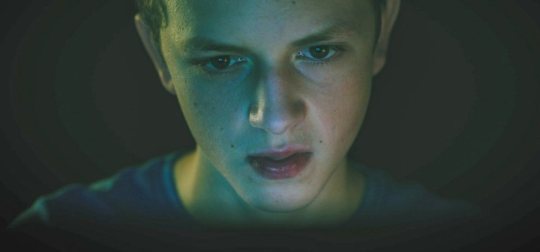
Sam leads a double life: he’s secretly NoFace, an online troll who often targets his closest friends. When he ignores a message warning him to stop trolling, things start to go very wrong. This episode is set in the plush surroundings of a boarding school (one of Creeped Out’s more notable backdrops) and the contrast between Sam’s environment and his online life is both palpable and believable. The dynamic between Sam, Fitzy and Naini is established very effectively—you really feel Sam has something to lose. Extra points for the properly bleak ending, too.
3. ‘Kindlesticks’ (Season 1, Episode 9)
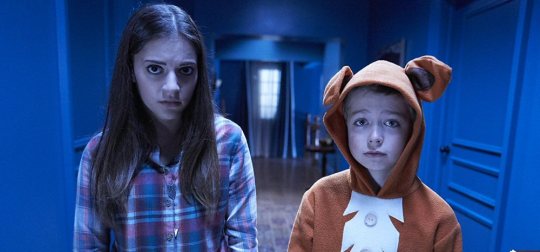
This episode is a fan favourite, and it’s not difficult to see why. ‘Kindlesticks’ came out of nowhere, landing in the middle of a few mediocre episodes, and doesn’t seem at first glance to have the most exciting setup: a bad babysitter getting her comeuppance. Yet you’ll likely find that the tale of Esme, her charge Ashley and his imaginary friend Kindlesticks will drag you in, spit you out and leave you reeling. It’s a simple idea executed perfectly, with what is undoubtedly Creeped Out’s best delivery of a twist. Seriously, I didn’t see that coming at all.
4. ‘Splinta Claws’ (Season 2, Episode 10)
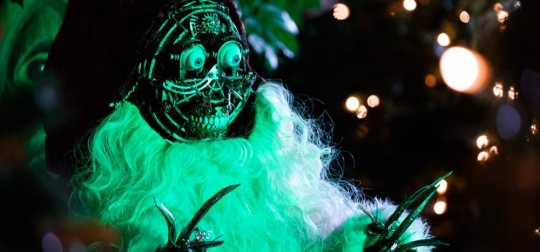
Admittedly, it isn’t difficult to make a Christmas episode good—add lots of sparkly decorations and a bit of ‘Carol of the Bells’ and you’ve already nailed the atmosphere. ‘Splinta Claws’, in which two boys get trapped in a department store along with a possessed animatronic Santa, builds on that to create an inspired take on PG-13 seasonal horror. It’s the self-aware script that really makes this episode; the ‘frenemy’ relationship between anxious Mikey and street-smart Lawrence, plus the characters’ recognition that the slow-moving Santa isn’t that scary (despite its nightmare-fuel face). An effective combination of action, emotion and humour results in a spooky festive treat.
5. ‘Tilly Bone’ (Season 2, Episode 9)
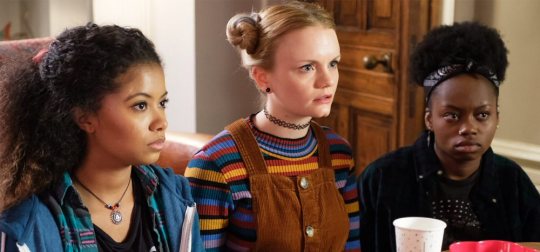
Telling a story backwards is a bold move, and initially, it makes ‘Tilly Bone’ confusing. Some viewers might find themselves wanting to switch off as they wonder what the hell is going on. But stick with it, and a fascinating tale unfolds, with layers, details and clues to be picked apart, nods to classic horror, great performances (especially Alice Franziska Woodhouse as the disquieting Junebug) and some of the series’ most original and surprising ideas. It’s formally innovative, daring and altogether one of the most impressive pieces of work Creeped Out has yet produced.
6. ‘Marti’ (Season 1, Episode 4)
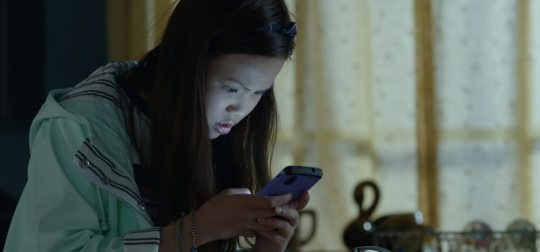
Kim is initially delighted when her new phone’s AI helps her to become more popular, but things take a turn for the sinister when ‘he’ claims to be in love with her. ‘Marti’ cleverly uses this premise as a kid-appropriate way to explore themes of coercive control and abusive relationships. I have a feeling this episode may have been inspired by the 2016 movie Bedeviled—there are lots of similarities, right down to Marti’s voice—and it says a lot that in 25 minutes it crafts a better, more meaningful story than a full-length horror movie for adults was able to manage. Often unfairly slept on, ‘Marti’ is the talented underdog of the series.
7. ‘Takedown’ (Season 2, Episode 8)
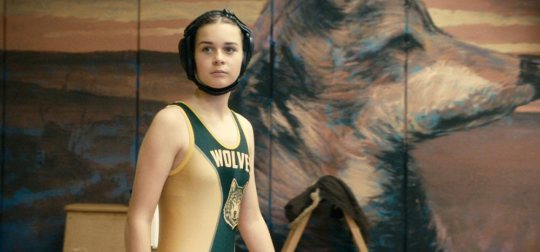
‘Takedown’ is intriguing because it departs completely from the series’ typical aesthetic—there's lots of shakycam, a grainy feel to the cinematography, a muted colour palette. It’s shot more like an indie film than an episode of a kids’ show. It focuses on Alexa, the only girl on her high school wrestling team, who uses a weird chain text to wish for more strength. Since this is Creeped Out, it’s no surprise that her ‘gift’ comes at a price. With its gritty feel and the authentic friendship between Alexa and Lucky (‘cheers to root beers’, anyone?), this episode is something really different, and all the more memorable for it.
8. ‘No Filter’ (Season 2, Episode 6)
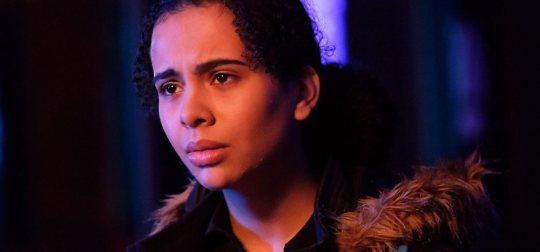
Like ‘Trolled’, ‘No Filter’ is a thoroughly enjoyable example of what a series like this should be aiming for, which is essentially a junior version of a Twilight Zone episode. There’s a recognisable starting point—who hasn’t used filters or Facetune to make their selfies look better, and who bothers reading all the T&Cs?—and when Kiera’s eroded face is revealed, it’s one of the few moments in the series to create a genuine shock. Plus there’s a proper pantomime villain, just as it should be. The ending might be a little jumbled, but it’s entertaining enough that that can be forgiven.
9. ‘Cat Food’ (Season 1, Episode 2)
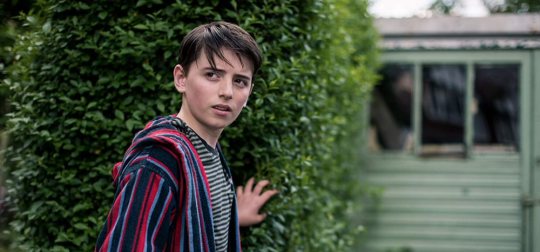
Happy-go-lucky prankster Stu pretends to be ill so he can skip school, but gets more than he bargained for when he discovers the elderly neighbour, Mrs McMurtle, is actually a shapeshifting monster. ‘Cat Food’ is a fun, comedic episode (the only one yet to make me laugh out loud) and, while there isn’t a great deal of substance to the story, it’s efficiently told and neatly resolved. Rhys Gannon is great as Stu and it’s just an all-round fun time.
10. ‘The Traveller’ (Season 1, Episode 11)
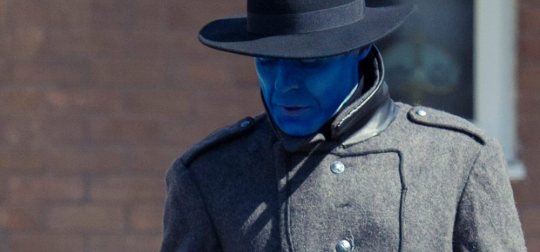
While the vast majority of Creeped Out episodes take place in a distinctly middle-class milieu, ‘The Traveller’ switches things up by focusing on Jodie and Brandon, troublemaking kids on an inner-city estate. They come across a device that can pause time, and it’s all fun and games until a blue-skinned man starts hunting them down. The plot is a bit more Doctor Who than your average episode, and the combination of urban setting and sci-fi story is surprisingly successful. There’s also an emotional gut-punch of a moment when Jodie finally understands the problems she’s been creating for her mum.
11. ‘The Call’ (Season 1, Episode 6)
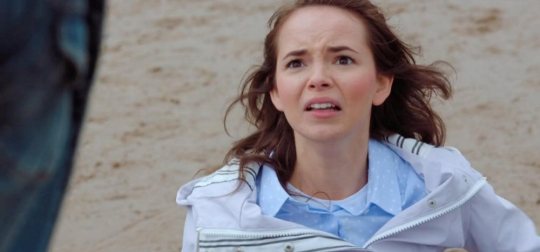
‘The Call’ isn't one of the strongest stories in Creeped Out’s repertoire. An unpopular girl is drawn to an environmental activist and discovers she’s a siren, gaining powers into the bargain—interesting enough, but not enormously original, and inevitably a gateway to slightly tedious lecturing about plastic etc. It stands out mainly because of a stellar performance from Rebecca Hanssen, who reminds me of a young Olivia Colman. Hanssen really inhabits the character of Pearl, and shows how excellent acting can elevate an ordinary plot and script.
12. ‘The Many Place’ (Season 2, Episode 4)
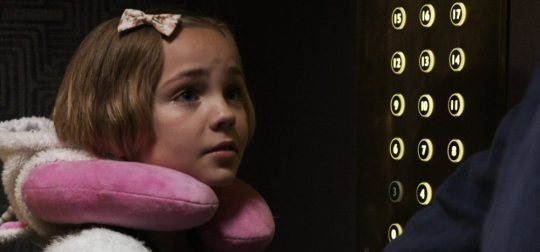
With their holiday scuppered by torrential rain, three siblings wander a hotel and find themselves lost in a maze of realities. ‘The Many Place’ is designed as an homage to Stanley Kubrick’s The Shining, and spotting the references is part of the enjoyment here. The story takes advantage of the liminal, disconcerting nature of a large hotel to craft a series of alarmingly plausible terrors, and the ending features the best twist since ‘Kindlesticks’.
13. ‘One More Minute’ (Season 2, Episode 1)
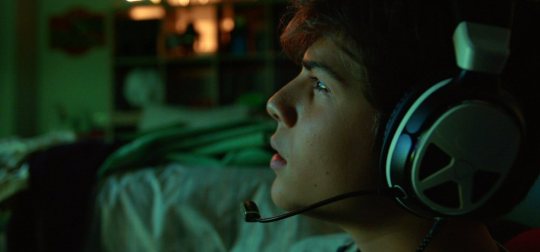
‘One More Minute’ kicks off the second season with a pure hit of enjoyment that doesn’t take itself too seriously. When Jack can’t tear himself away from his favourite videogame, he finds time passing quickly—scarily quickly. While it may not be among the best, everything about this episode is solid: it’s (appropriately) well paced, the relationships are soundly fleshed out, and it’s all wrapped up well.
14. ‘Itchy’ (Season 2, Episode 2)
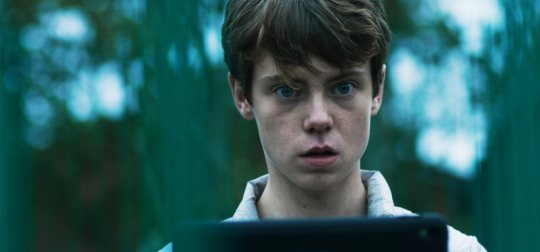
It may have one of the show's sillier premises—the villains are... head lice—but I have a soft spot for ‘Itchy’. Perhaps it’s the setting: a military academy on an English island feels fresh when you compare it to the many identikit homes and high schools in the series. Perhaps it’s the strong performance from Oliver Finnegan as protagonist Gabe. Either way, there’s something low-key charming about this episode.
15. ‘Side Show’ (Season 1, Episodes 12 and 13)
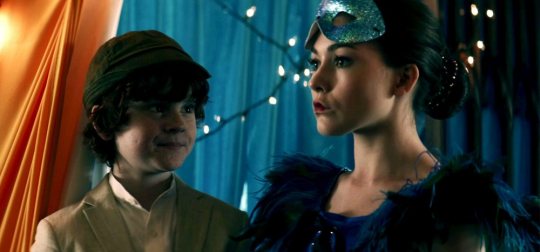
This two-part season finale is set in the early 20th century and centres on a troupe of circus performance whose ringmaster won’t allow them to venture beyond a magical barrier. Overall, ‘Side Show’ isn’t especially creepy; it’s more of a fantasy story that feels like it could have been its own separate series. The advantage of this is that there’s more space for character development and worldbuilding. The disadvantage is that it doesn’t truly feel like part of the Creeped Out universe.
16. ‘A Boy Called Red’ (Season 1, Episode 5)
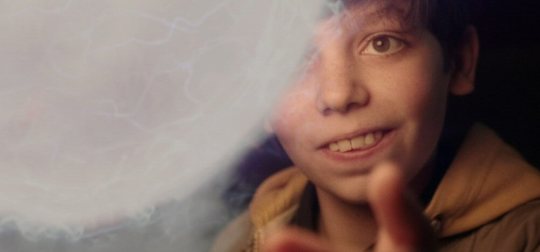
Vincent and his dad aren't getting along, but when they go to stay at the latter’s childhood home, Vincent finds an unusual way to reconnect: via a time-travelling portal. The switches between past and present are handled admirably, and Boris Burnell Anderson is a standout as AJ. There’s a lot to like about ‘A Boy Called Red’; it just doesn’t stand out as especially memorable when compared to some of the stronger Creeped Out stories, perhaps because there’s no real antagonist.
17. ‘Bravery Badge’ (Season 1, Episode 7)
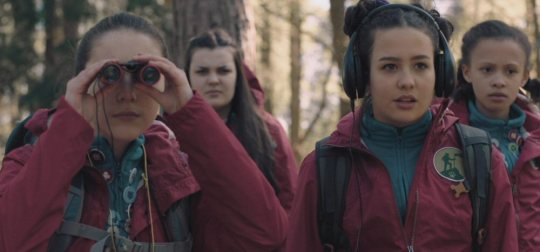
A troop of Girl Guides—sorry, ‘Hedgehog Rangers’—head into the woods for a camping trip. When the girls start falling into a strange trance, it’s up to a moody, reluctant Ranger to save the day. The setting here is promising, the campfire scene is a highlight, and the urban legend about the missing troop is a great touch. Unfortunately, the good stuff is undermined by questionable acting and a somewhat ridiculous supernatural menace. Though I will admit the singing is quite creepy.
18. ‘Shed No Fear’ (Season 1, Episode 10)
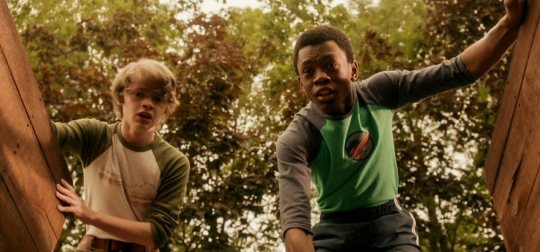
Set in the 1970s, with some decent period detail, this episode follows two boys as they battle a mysterious shadow-creature inhabiting an old shed. It’s cute to see Greg and Dave rekindle their friendship and tell the smarmy football captain to get lost, but the threat of the Shade is never particularly well-developed. The title also annoys me. Outside the context of this episode, nobody has ever uttered the phrase ‘shed no fear’. It isn’t even a good pun!
19. ‘The Unfortunate Five’ (Season 2, Episode 5)
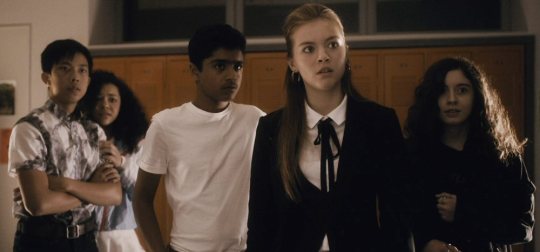
Five kids in detention meet their match in a seemingly sweet, yoga-loving teacher who pits them against each other. Establishing five protagonists and two villains within the space of 25 minutes is a tall order, and it’s one this episode doesn't meet. ‘The Unfortunate Five’ has a good concept and also boasts one of the series’ goriest images (when Faye attacks Hawkins and blood spatters across the glass—I’m kind of surprised CBBC didn’t cut that). But the flimsy, unmemorable characters doom it to the lower reaches of this list.
20. ‘Only Child’ (Season 2, Episode 7)
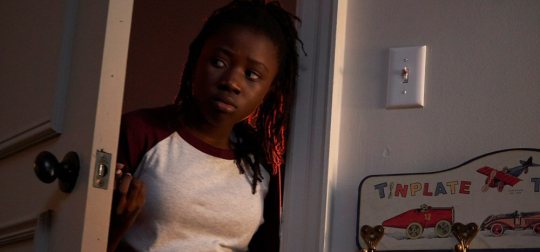
This could have been great: the story of a girl being menaced by her demonic baby brother, while her parents are convinced she’s just jealous, has lots of potential. Yet ‘Only Child’ doesn't really work. The denouement is rushed and muddled (exactly how does Mia identify the link between the baby’s power and the feedback sound?) and the low-budget special effects don't help. It also suffers from being set entirely within the Tuthill family’s apartment, which looks like a cheaply decorated show home.
21. ‘Help’ (Season 2, Episode 3)
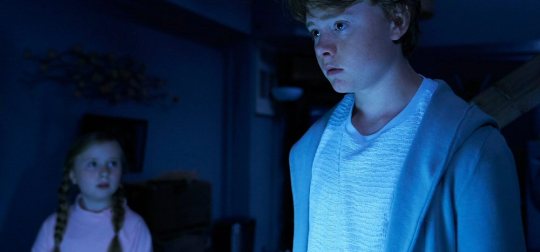
A very meh installment about a brother and sister who are overly reliant on their family’s Amazon Alexa-like virtual assistant. It’s basically a weaker version of ‘Marti’ with a much less impactful message. The siblings are barely fleshed out, and the episode shares with ‘Only Child’ a sterile-looking set that doesn’t resemble a real family home at all.
22. ‘Spaceman’ (Season 1, Episode 8)

If episodes like ‘Trolled’ and ‘No Filter’ represent what a show like Creeped Out should be, ‘Spaceman’ is exactly what it shouldn’t be. If ‘Cat Food’ proves how well humour can work within a scary story, ‘Spaceman’ shows exactly how it can go wrong. The tale of unlikely pals Spud and Thomas finding a crashed spaceship is by far the worst thing Creeped Out has come up with—it’s implausible, unfunny and not remotely creepy. Avoid.
2 notes
·
View notes
Text
film watch day 31: Every Halloween Film
happy Halloween today i watched every Halloween film currently available to me. i couldnt get to rewatch Halloween 2018 but i already wrote about it a couple of weeks back so feel free to revisit that post. anyway, i watched ten Halloween movies today. It took around 17 hours. i started at 11:15am and im writing this now at 6 am.
so lets get to the post. for the most part i went in chronological order, except i chose to start with Rob Zombie’s remakes because i knew if i didnt id be finishing the day by watching them at the break of dawn and the idea of doing that was so fucking putrid to me that i decided to get them out of the way first.
Halloween (2007)
i hate this fucking movie. i mentioned in an ask the other day but im happy to repeat here, i dont hate the idea of expanding on Michael’s backstory. like the fact is we largely know his backstory, the issue is how this film chose to portray it. the original Halloween is frightening because its based around the idea that the seemingly safe, quiet suburbs are not as safe as they seem; you can be on a street youve known your entire life, only a few metres from your own home, and still at risk. the whole idea of showing Michael as a murderer when he was six is to tell us that anyone could be a threat, that our conventions that all killers are a particular kind of person is false.
Halloween 2007 says fuck that, we know what serial killers are, and theyre those poor kids who come from shitty neighbourhoods and have abusive parents and mothers who are sex workers. everything that Halloween brings to the table is fucking tedious, played out, and massively uninspired. it wants to bring us the truth about why Michael is like he is, but Rob Zombie’s only understanding of serial killers is in the cliche and exploitative. he has nothing honest about human nature to show us, only the exact same stories that have been fed to us by crime and horror movies past.
this film is incredibly loud and in fucking constant motion. even on steady shots of still scenes the camera constantly shakes, and in every other scene its always whirling around from tracking shot to panning over the scene to just idly zooming in and out of nothing. Zombie’s favourite shot is to have something large and out of focus in the foreground -- like some plants -- and to shoot the characters standing about six feet away muttering to themselves. every single fucking shot in this movie lingers too long, every scene drags a little longer than it needs to. this film moves with the pace that i would describe as “family guy gag”.
and this film is so loud. people are always talking or screaming, largely about nothing important or interesting. theres always music, but it never particularly adds anything; for reasons i fail to fucking understand the entirety of the original theme plays over mostly uninteresting tracking shots of a minor character walking around yelling filler lines about nothing.
the writing is horseshit. everyone in this film is vile, no one talks or behaves like real human beings. almost every exchange in this movie is the characters saying the exact same thing back and forth inanely, frequently punctuated by screaming FUCK as loudly as possible and talking about sex in a way that 40 year old men really really wished teenage girls talk about sex. Halloween (2007) is thoughtlessly gross and mean and nasty, disconnected from any kind of human sensitivity and empathy. it wants to be complicated and to be deep but its crushingly simplistic and stupid. the only thing that redeems it is that its not Halloween II (2009). speaking of which...
Halloween II (2009)
jesus christ this movie is so fucking boring. Halloween II is two hours long but feels like its about twenty hours long. i felt like i was watching this film for twenty days and twenty nights. i was trapped in an eternal purgatory with this movie.
i really cant fucking emphasise how boring this film is. endless scene after scene of nothing of consequence happening, uninteresting death scenes that add nothing, and Michael wandering around doing jack shit. Halloween II fucking made Michael Myers boring, and im saying this as someone who (as i repeat once every 8 seconds) has a tattoo of him. this film couldnt hold MY interest in two of my favourite characters of all time.
the big fun new addition from the first movie is the presence of Michael and Laurie’s mother as a kind of weird goth ghost guiding Michael to kill. i dont know why Michael had to be Jason Voorhees and be a mommy’s boy all of a sudden, but this addition brings absolutely nothing of interest to the film or to his character. its meant to be symbolic of fucking... something im sure, but it feels meaningless. somehow Michael and Laurie are both able to see and interact with this ghost and the ghost has an agenda to do... something? it feels about as intelligent and coherent as the bullshit cult of thorne shit from 6, but a lot less fun. at some point Michael Myers apparently has mind control powers?
not to repeat myself a hundred fucking times but this film is insanely unpleasant to watch. every scene someone is screaming, generally wailing “fuck you bitch” at anyone in their vicinity. this is two hours of people howling swear words at each other and not infrequently making rape jokes. Rob Zombie loves rape jokes! almost as much as he loves putting sexual assault in his movies over and over again for no reason.
there is nothing to enjoy in this film. theres nothing to gain. there is too much slow-mo and far too many strobe lights and absolutely nothing of any intelligence or grace. Halloween II is a thirteen year old boy in a korn T-shirt calling his mom a bitch while he draws zombies on the back of his homework, which he will get an F for because the only thing he wrote was “reading is for faggots”.
Halloween (1978)
what the fuck can i say. this is one of the greatest horror movies ever made, if not the greatest. its one of my favourite movies. its forty years old and still just as chilling and frightening as it ever was. it has some shot composition and cinematography thats up with the best ive ever seen, all while being shot on a budget of $300,000. it does more with less than just about any film, launched the slasher genre, shot Jamie Lee Curtis to stardom and created a pop culture icon that stayed strong for decades. its a masterclass in tension and suspense, a lean-cut perfectly paced film with heaps of atmosphere and character.
i love this film with a frantic passion that makes me unable to talk about it in a particularly helpful way. i cant “review” Halloween. I love this film beyond reason and sense and you either get it or you dont.
Halloween II (1981)
Halloween II is largely one of the less remembered entries in the franchise; its a decent enough movie, neither matching up to the highs of the original or the lows of the later films. its a pretty enjoyable little film, created under the logic of ‘well the first one did well, lets do the same thing again’. Carpenter wrote the script but didn’t direct, and while the film has a solid story, the directing lacks his signature flair. its hard to pinpoint, because the film is generally fairly well-shot, but lacks a kind of eye for shot composition that Carpenter made look easy, doesnt have as much patience for suspense.
on its own merits, theres still some great shots and great scenes in the movie. and a lot of really cool kills; II got a lot more creative with what Michael was capable of, and i think the boiling water drowning kill is rightfully pretty infamous.
this was the last Halloween movie Carpenter wrote, and it was the film where the idea of Laurie and Michael being siblings was introduced. and believe me ill defend this fucking decision to the grave. adding the human connection between Michael and Laurie gives a whole other layer to their relationship thats so fascinating to me, and i love that other films try to expand on the themes of family. in general, deciding that this film would continue to focus on Laurie and not do what later slashers did with bouncing around between different casts was a great fucking move, ironically for a franchise that was intended to be an anthology.
quietly exploring the aftermath of the first film was a good idea for a follow-up, and i especially really enjoy Loomis��� role in this movie, and his discussion about who Myers is. the biggest disappointment for me personally is that Laurie lacks a lot of presence in this film. Curtis is great, as always, but the movie dawdles on some side characters who are too disconnected from her to get a sense of what shes going through.
all that being said, Halloween II is decent. the ending is really great, with some really powerful shots. Michael bleeding from the eyes of his mask after Laurie shoots him is one of the best fucking images in horror and him swinging blindly as Laurie and Loomis slowly orchestrate his death is a fucking amazing scene. i have an immense fondness for this movie, with all its flaws. it brings a lot of really cool concepts to the table, and i think it deserves some appreciation.
heres a question tho; where the fuck were Laurie’s parents. theres a suggestion theyre missing, but theres no explanation why and we never hear from them. did michael kill them too? hello? mr and mrs strode? your daughter just fucking killed a guy and all her friends are dead. where the fuck are you.
Halloween III: Season of the Witch
Halloween III is infamous as being the Halloween movie that isn’t about Michael Myers at all. when it first released it was wildly unpopular and remained so for quite a while, but has had a surge in popularity over the last few years. i think just about every horror critic i know now considers Halloween III one of the best in the franchise. and to be fair to it, its a great little movie. not a slasher at all but rather a conspiracy thriller, Halloween III is all about the mystery of what the Silver Shamrock mask-making company are really up to, and why people are disappearing. its a weird and creative little movie, with some really fucking great practical effects that turn it from just being a thriller to being an all-out horror film. it has a few too many ineffective jumpscares and some of the plot twists are kind of disappointing and feel a little too much like the easy option -- and then others are so wildly bizarre no one would see them coming because theyre fucking completely out there. but i kind of love that sort of nonsense in a horror movie. like lets just have a fucking good time in here for once in our fucking lives.
Halloween III is not a perfect or even a really great movie, but yknow, fuck it. the idea that only perfect films are worth watching is dumb. i appreciate the weird shit this film tried and i think it deserves a lot more respect than what it got; if it had been released under another title it probably would have gone down as a classic instead of being derided for years, you ask me.
now things start going rapidly downhill
Halloween 4: The Return of Michael Myers
Halloween 4 is when Jamie is introduced as the new final girl; Laurie’s seven year old daughter, after Laurie herself died off-screen in a fucking car crash. the decision to kill off Laurie came from Jamie Lee Curtis decided not to return to the character and instead of recasting her, they went with just having her… die. off-screen. in the franchise where the previous two movies were about her triumph and determination to stay alive. like its the casual thoughtlessness of this that, the idea no one would give a shit a character returned, that in my eyes epitomises how fucking little anyone cared about this franchise going forward.
man the idea of Laurie dying completely irrelevant to Michael… thats a lot. anyway continuing on his quest to erase anyone related to him, Michael starts targeting his niece Jamie for the three movies in the franchise. this is where the series started rapidly losing any grip on reality. while Michael always had some kind of superhuman elements to him (he took six bullets to the chest and survived in the first movie) these became increasingly wildly exaggerated. now hes crushing peoples skulls with his bare hands shit like what the fuck. first of all do that to me and secondly, it was this kind of slide into unreality that let the supernatural elements of the series creep in further until you end up with the shitshow that is Halloween 6. like it was the decrease in the impact of violence and human life that really fucked this franchise over.
this film is not great. its a definite decline in quality after 2 and was on the slippery slope downwards. it has some high points, primarily in Dr Loomis. Donald Pleasance is a better actor than most movies deserve and brings gravitas to a role that in the hands of a less capable actor would be laughable. his sincere plea to Michael at one point to just kill him instead of going after Jamie is honestly fucking tragic.
outside of that, the film isnt massively interesting. Michael himself isnt particularly threatening or engaging, and his mask looks like shit in this film. the characters in this film are largely very stupid, also, which doesnt help anything much.
Halloween 5: The Revenge of Michael Myers
if theres a Halloween movie people talk about the least, its this one. II has the sibling twist, III is the black sheep, 4 is the return, even 6 gets talked about for its troubled production history. no one has anything to say about Halloween 5. and thats mostly because there is fucking nothing to say about Halloween 5. it is a relentlessly fucking dull movie that pads out its 100 minute run time with endless unnecessary scenes of shit that does… nothing. this film is dull in a way that i find incredibly detestable. i cant even watch it through a haze of impassioned anger like i can with the also incredible dull Halloween II (2009). its just fucking boring. every single scene drags like its trying to walk on two broken legs. the plot is so bare bones its nonsensical. it constantly adds new characters and new elements but all that does is makes it more incoherent and confusing. watching this movie i literally found my fucking eyes glazing over in my skull. if this film was edited correctly it would be twenty minutes long. i cannot fucking emphasise enough how much of relentless slog it is. Halloween 4 was dull but even that had the lifeline of ‘some cool ideas’. Halloween 5 is nothing. Halloween 5 is puddle dirt water.
Halloween 6: The Curse of Michael Myers
if Halloween 5 is puddle dirt water Halloween 6 is just a fresh hot glass of piss. there are two versions of Halloween 6, the director’s cut and the theatrical release, and both are wretched. this film went full ham with introducing the supernatural elements, telling us that Michael was his whole life psychically controlled by a pagan cult called the Cult of Thorne in order to make Halloween scary again or summon the devil or who fucking cares. this movie is fucking insufferably dull, totally absurd, and wildly unsympathetic. i loathe Halloween 6 and every terrible, stupid plot decision it makes. Paul Rudd defeats Michael Myers by drawing druid symbols on the ground and Michael just gives up and lies down. theres a baby that does nothing and serves no purpose. Halloween is apparently banned in Haddonfield, which makes this more closely related to Footloose than Halloween i think. this film takes itself incredibly seriously while spouting nothing but total fucking bullshit drivel and i dont believe that anyone involved in this movie, from the cast to the cameraman to the guy who served the lunch had any faith in this movie outside of the vague hope it might make money and i wish this movie had been burned at the stake. also i hate Paul Rudd.
Halloween H20: 20 Years Later
oh thank fucking god finally some good fucking food. Halloween H20 took the decision to retcon all the sequels (except II) twenty years before Halloween 2018, proving that everyone knew 5 and 6 were fucking mistakes.
this film loses a lot of the Halloween feeling in favour of making a more generic late 1990s/early 2000s style horror. theres nothing particularly interesting about the way this movie is directed or shot, the music is largely very generic, it has a generally uninteresting glossy quality to it that studio movies always do. its very obvious this movie was inspired by Scream and it looks a lot more like Scream than it does Halloween. all of this makes me kind of sad, but other films in the franchise have proved that other directors generally are not capable of imitating Carpenter’s style so maybe its better they dont really try.
what H20 does so well, and the reason i love it so much, is that it explores the relationship between Michael and Laurie, which is something im endlessly fascinated with. this was the first movie to have Laurie shake off her fear and rise up against Michael, and while it doesnt do it with quite as much depth and intelligence as Halloween 2018, it still has a fucking good crack at Laurie’s character, and its still powerful watching her turn on the man who terrorised her for years. Michael is great in this movie too; while he has a terrible mask, watching him back on his shit as a furious force of nature who wants nothing more than to destroy anyone who gets in his way.
honestly i kind of enjoy having a Halloween in a different style; theres something fun about seeing characters recontextualised and done with justice and empathy. most of the Halloween sequels before this one (and after, looking at Resurrection) are shallow, unconcerned with any kind of emotional depth or personality. and while a lot of the stock filler characters in H20 who are lined up for the chopping block arent that interesting and dont particularly standout, watching Jamie Lee Curtis’ performance and seeing her interplay with Michael is enough. and most of the side characters arent particularly annoying, which is more than i can say for half this franchise.
this film also has what is one of my absolute favourite endings in a movie ever; the final confrontation between Michael and Laurie has a particular interaction between them that i absolutely adore and that alone is enough to make this movie one of my favourites.
H20 isnt perfect; it weirdly feels like a blueprint that Halloween 2018 would later refine into a better movie, but the idea its going to be completely disregarded for Halloween 2018 in the future makes me a little sad. in the face of so many fucking mediocre and awful Halloween sequels it did the right thing in trying to focus on what actually mattered; the connection between Michael and Laurie, although i dont feel like it succeeded in making Michael as scary as 2018 would much later. that said, the shot where Michael and Laurie just stare at each other through the glass of a window? that gives me chills every time. and hearing the Halloween theme kick in as Laurie marches off into the school with an axe looking for Michael is so fucking triumphant.
i love H20 even if Michael’s mask looks like his hair was dunked in a bucket of water and then gently blow-dried. i have no idea why it looks so fucking stupid in this movie. why is it so hard to get Michael’s mask right. you wouldnt think it was that fucking hard. anyway, i really fucking love Laurie Strode a lot, which didnt help to make Resurrection any easier to swallow.
Halloween: Resurrection
so whats the obvious thing to do after you have a movie where the power and emotion all comes from the emotional catharsis of seeing a woman get her vengeance on her tormentor? you, uh, make a sequel in which she is immediately defeated and pointlessly killed after its revealed her victory at the end of the previous film was entirely false, and then you never return to focus on her and instead introduce a horde of entirely uninteresting stock characters. yeah, makes sense.
Resurrection is fucking incredibly stupid, in the kind of fucking hysterical way only really bad horror movies can capture. theres absolutely nothing of Halloween in this other than the presence of Michael, who just as easily could have been replaced with anyone or anything. the story has a group of people on a reality show staying in the Myers house to… stay there? its not entirely clear what the challenge is meant to be, other than to just be inside the house, which i imagine gets to be pretty dull viewing pretty quickly. theres no suggestion theyre like, hunting for ghosts or something along those lines, theyre just… looking at stuff.
Michael slopes around this movie like he doesnt fucking understand where he is or whats going on, an entirely out of place relic of better times past while the cast cavorts around him doing nothing of interest and having no plots or characterisation to speak of. the film has exactly two or three funny moments, including the legendary ‘Michael Myers getting electrocuted in the dick by Busta Rhymes’, but youre way, way better off just looking that up on youtube instead of watching this movie. there is an hour of pointless plot development about characters no one cares about until Michael starts fucking killing people. this movie shouldnt exist and we should all go back to pretending it doesnt.
and thats it. thats all the halloween films. i can die now.
21 notes
·
View notes
Text
Pain Can Heal
One-Shot Story about Chris x MC dealing with Chris’s past abandonment and loss from his father and how it affects them now.
My September 10th “Loss” addition to @i-dream-so-i-write ‘s September Fanfic Challenge ( @choices-september-challenge)
NOTE: This is a fictional story based on Pixelberry’s Choices App. *The Freshman books. I am not affiliated with Pixelberry nor do I own the rights to their original characters.

Late June, light breeze and a burning sun; not as bright as it would be in the following months but still burning like a growing fire. It didn’t matter how many years had past June would always haunt Chris. As the eldest sibling in his family he was the only one with a distinct memory of this month. Even now, with kids of his own late June hung over his head.
Looking crossed the cotton white sheets he saw her, the woman he’d fallen for, literally. Almost 12 years ago on the quad he’d bumped into the hazel eyed, auburn haired novelist he didn’t know he’d been dreaming about. He can remember every fight and every touch with her. He knows her every move and aspiration, even still in her thirties she wanted to take on the world. She inspired him.
Sometimes he still felt his heart skipped a beat just looking at her, and even more so these days. He loved looking at the forming smile lines and wrinkles that mirror his own as age became them. In his two beautiful children he saw her come alive. But with late June looming over his head the thoughts and memories fell back to his childhood.
Chris had been trained on the streets surrounding his house, he’d learned every house every neighbor and every route home from his elementary school. Summer had just begun, he’d be going into the fifth grade in the coming fall and he fully intended on making him and his misfit friends the kings of the playground. They needed to take advantage of the jungle gyms and allowed recesses before they were stolen from them by the growing of age. He road his bike around the blocks waving to Mr. and Mrs. Prince the elderly couple who’d given him this bike when their own grand kids had grown out of it. As he approached his house as the sun began to fade he admired the home, it was small but it was his. Chris loved his life, the cares and worries of the world had yet to sink into him, but they would. Sooner than he thought. Looking up his driveway he noticed his Father's old red truck missing, strange but not enough to worry him. He ditched his bike near the front steps of his house running inside quickly. There was a tone in the air that even a child could feel.
“Mom, I’m back” he called kicking off his dirt covered tennis shoes. Not noticing the many shoes now missing from the pile behind the door. He noticed his little sister, almost one years old sleeping in portable crib, most of his friends had mocked their sisters but he loved his. She was small and gross with her screaming and spitting. He was fascinated by her. Continuing his walk through the small entryway he heard a noise that his innocent and young ears should never have had to hear. The sound was chilling the cries of his mother, the noise was laced with pain and tears as she screamed not knowing her eldest had entered. The sound unfamiliar still startled the young boy as he wandered to the kitchen finding his mother, head in her knees sitting against the light tan wood and rusting hinged cabinets.
“Mom?” he asked again, he’d only seen tears like that come from the infant in the next room. The eyes that loved him, the eyes that tucked him in at night were now tear stained and red staring up at him shocked.
“Christopher!” she spoke startled through her shaking breath, Lily, Chris’s mother had her own emotional past. She’d become good at hiding her pain, only showing it when completely necessary. As she saw her son she also saw him, she saw the man who only hours ago had left her life, forever. She wiped her tears quickly pushing back the anger that her ten year old had instilled in her with nothing but the features of his face. She knew he was not his father, and her current state was not a sight her son deserved to see. She stood quickly hiding her emotions though her legs felt like broken twigs. “Chris, I’m sorry… How were your friends.. I..” she trailed trying to find a perfect excuse for why she was sprawled out on the kitchen floor.
Chris would learn a lot about growing up and what it meant in the coming months but for right now the only reference he had for what he was supposed to do in this moment was the memories of his siblings as infants. When they cried his parents would hug them, so his small and growing mind did just that. He ran over to his mother hugging around her stomach where his height had landed him, he closed his eyes squeezing tight and hugging her to stop the crying as she had when he was younger.
“Good morning” The weak sound of MC’s voice spoke as the familiar greys of her eyes met with his own. Chris had taken a business trip for two weeks and last night had been his first night home. He longed for her warmth every single day, he couldn’t imagine walking away from her as his father had his own mother.
“It’s June 26th” he spoke letting the blues of his eyes fade darker with is tone, this pain of loss what something Chris would never shake. Not as a 15 year old, nor as a college student and now as a parent he still questioned his father's actions.
“I know.” MC said pulling her hand from the covers of the bed and placing it gently crossed his cheek. “And you’re Christopher Powell.” she smiled “You’re a father, and a husband and you have a wife who does not fear you. Your last name does not belong to him, it belongs to us, to the Powell family you’ve created”
“We’ve created” he corrects her softly.
She shows her white teeth now moving closer to kiss him softly as she pulls away her face winces with a sharp pain.
“MC?” Chris asks worried now, but his face softens when her pain turns to laughter.
“Guess our baby is awake too.” she smiles taking his hand his her own and placing it on her stretched abdomen. “Only a little over a week before she makes her appearance, a family of five, do you think we’re ready?” she jokes.
“More than ready.” he lies with confidence, ever since she’d told him she was pregnant last fall he’d worried more and more about his family's history.
Frank Powell was a father of 3, two young sons and a bouncing baby girl. The families around the block admired his masculinity. The young Powell lovers had made a life for themselves in the backstreets of Maine. He worked every day for his family and Lily too. She’d been teaching piano lessons and tutoring the kids from neighborhoods far richer than her own. Frank would come home at the same time every day, and not a minute later. He’d kiss his wife first and then his eldest son moving next to the truly neglected middle child and ruffling his hair. It the final months before he left he’d add a tickle to the infant girl usually wrapped in his wife's arms. There was no sign of straying, no sign of unhappiness. Frank had become very good at hiding his doubts, fears and emotions. But one day, he snapped in more than just a mental way. It was years before Lily told her son the full truth behind the events of June 26th. But Chris as an 18 year old readying himself for college life was old enough in her eyes to know now...
“Senior year wasn’t easy to you but I think you came out on top.” Lily spoke as she spread a thin layer of butter crossed an only slightly burnt piece of toast. The breakfast she’d made her son everyday since the first day of kindergarten. “I can’t believe you head off to Hartfeld next week.” she spoke laughing through the pain that it caused her.
“Mom, I’m only 6 hours away and I’m going to call you at least once a week, probably even more.” Christopher spoke taking the breakfast from his mother, he wasn’t foolish he noticed the tone changing in her over the past few weeks. He knew that he looked like his father, that his blue eyes haunted his mother for the rest of his life. He was aware that him leaving would bring back unwanted memories, the scars on her heart were aching with the idea of it. He didn’t realize the details being unveiled to him as their conversation continued but he almost believed he was living in that moment, seeing things the way his mother had seen them...
Lily had started to notice her husbands attitude change over the course of the past weeks, he became more tidy and quiet. He’d been cleaning and organizing all his things like he’d never done before. She didn’t want to question it, figured it was the result of stress from work. Regardless of his change in behavior he still seemed overjoyed at the sight of his children, especially his youngest, his perfect newborn girl. When Lily woke on June 26th that year she didn’t expect at all the events of the day. She tied Chris’s shoes and sent him off on his bike for the day, he was supposed to be meeting with friends a few blocks away. She trusted him to make his way back in time for dinner. Her youngest son, the recent 5 year old was always dropped off at Daycare by his father before work, so when his room was empty she knew right where he was. She was going to be home almost completely alone just her and little Josephine who’d been a refreshingly calm child compared to her older brothers. She planned a trip to the grocery store which ended up tuning into running countless errands and taking hours out of what was supposed to be a relaxing day.
When she arrived back home she was shocked to find the red pick up truck in the driveway, she’d fallen in love inside that truck, it’d created so many happy memories for her and today it would unknowingly create the most painful of her memories. So shocked to see it there mid day she didn’t even acknowledge the back end full of boxes.
“Frank?!” she called, “What are you doing home?” she quickly placed Josephine in her crib and searched the house for her husband. Turning to climb up the stairs she saw him at the top, two large suitcases in hand. Her heart sunk in that moment, she began to notice things missing from her home, but nothing that was hers. She swallowed hard the dryness of her throat like sandpaper. “Going away on business?” she questioned, knowing she was wrong.
“Lilian.” Frank said flatly, it was almost disconnected, he’d never called her Lilian not since they’d met, she’d always been his Lily Flower. “I’m leaving.” he spoke stepping down the stairs not thinking twice about pushing past her. But Lily wasn’t weak, she was stronger than most women, it’d been what Frank found most attractive about her. Lily was quick to block the bottom of the stairs. Her voice shaky and hard now.
“Why!” she yelled letting denail set in, as her stages of grief began.
“The family is better off with out me. I’ve made my choice Lilian, move.” Frank spat back at her, showing an unfamiliar anger in his eyes.
“No! We’re a team, we work through things, we have three kids what am I supposed to do? You’re leaving me with them alone! What kind of man does that make you?!” she screamed now rambling in her panic, her face only inches from his own.
“I’m half the man you deserve, half the man these kids deserve.” he said his head hanging low as frustration built in him. “Now move I won’t ask again.” he voice dark.
“I won’t. I can’t” Lily responded and she wasn’t lying her body and mind in shock she felt as if she was trapped where she stood “I love you.” she said softly in a last a desperate attempt to keep him with her.
“I no longer can say the same.” he said his familiar blue eyes now black with regret. Something in him was different now and he used it against her, pushing her harshly aside as she banged her body into the banister. The harshness of the force had him touching her in ways he’d never done before, his hands that were full of hate and would leave bruises on her for weeks reminding her that the husband she knew was gone forever.
Losing her balance at the attack of his hands she fell to the ground watching him walk out the door, she came too soon enough to watch his red truck leave forever, to watch the memories of her college years in the bed of that useless medal fade away. She collapsed to complete nothingness on the floor of the kitchen where she’d stay for hours before the best man she knew, -no matter what his age- came to save her.
Chris listened to the hidden secrets of that day, he’d never felt so sorry for his mother before, he’d always known her to be strong and independent since then. But he’d never known that she carried injuries with her that were more than just mental. “Are you going to be okay?” Chris asked.
Lily knew her son, she knew family was the most important thing to him and that he would give up everything he’d worked for just to be with them still. She was sad to watch him leave, to watch him grow. But she knew he needed to go. Tears pooled around her eyelids at the end of her story as she nodded to her strong son “Yeah.” she smiled as her squinting eyes let the tears spill over. “We’ll be okay Chris, we’ll certainly miss you but we’ll be okay.” Lily said turning to nurse her coffee as she had for so many mornings before.
MC saw through the lies of her husband, but didn’t dwell on them. June 26th was not the day to dwell, it hadn’t been. Not since she met him, she’d made a point to make every June a celebration of how far he’d come. Of the accomplishments he’d made without the need of a father. “I love you Chris.” she smiled now sitting up in bed just in time to meet the small face peeking through the door.
“And what do we have here…” Chris asked sitting up staring back the small blue eyes walking toward him. His eldest, Claire. The little girl who softened his already soft heart. The two of them shared may traits, his sandy blonde hair and his bright blue eyes. While the soon to be middle child shared the traits of his mother.
“Good morning!” the seven year old beamed climbing up onto the bed and finding her rightful place on her father's lap. “Hows my little sister” Claire smiled at her mother placing her hands on her large stomach.
Chris could help but chuckle at the sight of it, it wasn’t because it was funny by any means. It was sweet, to sweet and his laughter had come out of his pure happiness. He quickly wrapped his strong arms around his daughter. A girl who’d inherited the sarcasm of her mother.
Dramatically she reached for air gasping, “You’re choking me!!” Claire screamed with laughter “I can’t go on!” she laughed as the tight arms around her turned to tickles. Her playful yells filled the air of the entire house, and it wasn’t long before her 4 year old brother Gabriel joined them on the bed.
The family was picture perfect, something from a book or a movie. They were happy, an emotion that the two parents had been certain to instill in their kind hearted offspring. Gabe jumped up and down despite the hesitation from his mother, Chris’s strong arms wrapped both of the rambunctious children up squishing them together. When he released them they all sprawled out on the bed. Claire’s hand landing near her mother she pulled away quickly shocked by the change of texture in the sheets, before looking to her father.
“Mom wet the bed!” she mocked playfully.
Chris looked over to MC who now wore shock in her eyes as she held her stomach, a smile wiped crossed her face as she knew the hours to come would be long. “It’s time.” she grinned nodding to Chris “Family of five here we come.”
“Everyone off the bed!” he yelled as the children scrambled to the thick carpeted floor. “To your rooms, go change go! Go! Go!” Chris instructed them “Operation baby sister is in full swing.” as the kids ran to their rooms he watched as his beautiful bride climbed from the bed. It wasn’t long before he was on his feet and at her side.
MC wasn’t in any discomfort yet as her water had only just broken. She’d done this twice before, she knew how to listen to her body. She was completely calm but found it comical again how worried and unaware her husband was now and had been with the two children before.
“June 26th?” she laughed taking his hand tightly in hers.
“June 26th.” he smiled in return.
This day would no longer hold loss and pain for him. He would no longer have to think about the abandonment and selfishness of his father. Late that evening almost on the turn of the date to the 27th he and MC welcomed their newest child into the world. Even through her tears, sweat and pain MC was happy. She was happy for her family, for her husband and for the day that her sweet little girl had decided to arrive. Chris had been clear since learning the sex of the child that he only had one name for her. Lilian. MC didn’t fight it, she thought it was truly perfect.
#choices#play choices#Chris Powell#chris x mc#The Freshman#the sophomore#the junior#the freshman fan fiction#the senior#choices fan fiction#xoempine#choices september challenge
37 notes
·
View notes
Photo
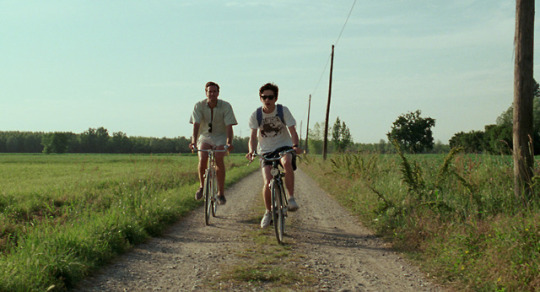
The Mystery of Love
(Review of ‘Call Me by Your Name’, seen in Nordisk Film Biografer Kennedy in Aalborg on the 5th of February 2018)
Love is a thing of beauty, but it’s also a thing of sorrow, of pain, of hopelessness. The same can be said about young adulthood. Probably for these reasons these themes are some of the most frequently portrayed in films. One of the latest examples of this is Luca Guadagnino’s Call Me by Your Name that has been widely praised and acknowledged for its touching and naturalistic story of young Elio who is facing the exact mix of emotions as mentioned earlier. Let’s be clear, Guadagnino has created an instant classic in the genre that managed to dodge all the obvious clichés and instead tell us a surprisingly fresh and heartfelt story.
Elio is seventeen years old and residing with his family in their summer residence somewhere in Northern Italy in the early 1980’s. From the first seconds in the house we feel how it breathes culture; the language switches between french, italian and english in a seemingly seemless manner and the topics of discussion are that of linguistics, fine arts and Elio’s music. Set against this high culture and very adult setting, Elio seems like the everyday teenager as he wanders through the abricot fields, flirts with his friend Marzia and swims in the lake with their friends. His world, however, is slowly turned upside down and he is sent on an internal journey of discovery when this summer’s American college graduate arrives to help his father with his work on Greco-Roman culture. A storyline that has been seen before in various contexts and variations. However, it is all the ingredients that Guadagnino puts together here that creates a memorable film that balances on the edge of being a masterpiece!
As young Elio, newcomer Timothée Chalamet is no less than a revelation. He potrays every aspect of Elio’s ever-changing and intense emotions with such finesse and conviction that its close to impossible not to be emotionally involved in all the ups and downs the character must endure. Chalamet seemingly does this with such ease that not only is his Academy Awards nomination fully deserved; he might also have deserved a win had it not been for mathematics of the Oscars matching Gary Oldman’s tremendous turn as Churchill with the often winning formula of “it’s his turn”. No matter what, Chalamet could easily deserve this recognition and if it will not happen this year, it seems bound to happen for him some time down the road in a not so distant future. The way he switches between boyish charm, rebellious teenage spirit, pure lust and ultimately devastating vulnerability is a joy to behold right until the very scene that underlines his tremendous performance in a surprisingly breathtaking and subtle way.
Opposite of Chalamet is Armie Hammer who gives an equally nuanced and emotionally powerful performance as the college graduate, Oliver, who seems in a confusing state as grave as that of the dear Elio. Age, relation, religion and the expectations from society causes havoc in his mind as he meets and develops his friendship with Elio. Hammer is perhaps most known for his performance in The Social Network and some rather unlucky Blockbuster turns, but here he positions himself as a fine actor, who manages to construct a believable character with many layers that me masterfully switches between.
The chemistry between Hammer and Chalamet and the constant clashes of their different confusions are the highlight of the film. Together they portray a love that has not been seen this naturalistic, believable and fragile on the big screen for a long time. As in last year’s Moonlight, the story here transcends itself in the sense that while it tells a detailed and specific story of homosexuality, it also manages to convey a more general story of the struggles of any love that might not be easy. That is not easy and its a huge testament both to the acting and the directing that it succeeds here.
In the supporting roles, it is in particular worth mentioning the always brilliant Michael Stuhlbarg as eccentric Mr. Pearlman (Elio’s father and Oliver’s boss), Amira Casar as Elio’s loving yet demanding mother, who in many ways embody the family’s focus on and fascination of high culture and, finally, Esther Garrel as Marzia; Elio’s friend with whom he explores different aspects of sexuality and love. She does not have a lot of screen time, but she adds a lot of power and emotion to Elio’s character in the scenes she is in.
The story is about emotions, youth, personal discovery and sorrow. But it is also a story of Italy and the American fascination of European culture. It is against the backdrop of the lush Italian nature that the Oliver (an embodiment of American culture) can finally set his feelings and desires free and the young, troubled teenager experiences all the things that bring him joy and happiness. Guadagnino manages to present northern Italy as a haven for the soul (admitted that’s not the most difficult of tasks) and it seems like the perfect backdrop for the equally heartwarming and -breaking story loosely based on the novel by André Aciman. The film is filled with symbols - often based on nature - and while some of them feel a bit forced, most of them are done with the same subtlety as the emotions of the characters, which make it simply delightful.
Everything fits together as the film’s 132 minute running time slowly goes by; the cinematography, the writing, the actors and the music that is a fitting mix of classic music and some new songs written and performed by Sufijan Stevens. Call Me by Your Name is something as rare as a “real” film in the sense that it feels naturalistic, realistic and not as constructed as the typical 2018 Hollywood production. Thank you for that, Luca Guadagnino! Later…
5/5
#Film#Film Review#Movie#Movie review#Oscars#Oscars 2018#Academy Awards#Call Me by Your Name#Luca Guadagnino#Timothée Chalamet#Armie Hammer#Michael Stuhlbarg#Amira Casar#Esther Garrel#André Aciman#Best Picture#Best Actor#Best Adapted Screenplay#Best Original Song
35 notes
·
View notes
Photo

New Post has been published on https://bestfungames.com/control-review-paranormal-portal/
Control Review - Paranormal Portal

A return to form for Remedy Games.
By Peter Brown on February 2, 2021 at 12:03AM PST
Control Review – An Action-Packed Paranormal Portal
Editor’s note: Following the launch of the PlayStation 5 and Xbox Series X|S, developer Remedy Entertainment has released Control: Ultimate Edition. This new version of Control includes all of its previously released DLC, including its story expansions The Foundation and AWE, and comes with new improvements over the last-gen version. Below are our impressions of how Control: Ultimate Edition runs on PS5, written by Phil Hornshaw. You can also read our full PlayStation 5 review for an in-depth breakdown of the console. Continue after the break for the original Control review.
Control is gorgeous and intense on the PlayStation 4 and Xbox One, but the Ultimate Edition on the current generation of consoles is Remedy Entertainment’s excellent 2019 game at its best. Control Ultimate Edition is a prettier, more stable way to enjoy Remedy’s strange paranormal world, and on PlayStation 5, it works in the great features of the DualSense to elevate the experience even more.
Playing: Control Video Review
The primary difference between the original edition of Control and the Ultimate Edition is the latter’s enhanced graphics. The Ultimate Edition offers two different modes: Performance, which prioritizes frame rate, and Graphics, which leverages the hardware for better textures, lighting, and ray tracing. In both modes, though, the difference between the Ultimate Edition and the standard version of Control is stark. These are drastic improvements over Control on the PS4 and make an already beautiful game look and play even better.
The graphics-heavy mode is something to behold. Control is full of reflective surfaces, whether they’re glass office walls or puddles of water or blood in its dark, brutalist halls. With ray tracing enabled, the game becomes full of gorgeous, real-world reflections, with protagonist Jesse’s face appearing on the screens of TVs as she watches films created by Dr. Casper Darling, and Control’s stark lighting and cinematography finding mirrors in wet concrete floors. Control’s art direction was already impressive, but it achieves even more on the newer hardware to create endless beautiful frames.
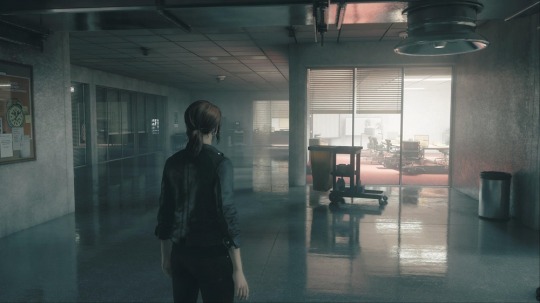
Gallery





Graphics mode sacrifices frame rate for those pretty images, but it never chugs or runs poorly (unlike the base game on PS4 Pro)–its frame rate looks to be on par with the last generation of hardware, but with more stability. Flipping to the performance mode sacrifices those beautiful reflections in favor of a silky 60fps, but Control looks great in both modes. The smoothness afforded by the higher frame rate definitely works to make combat feel a little more intense and responsive, but both modes work extremely well, so choosing one comes down to personal preference.
On PS5, Control Ultimate Edition benefits from the DualSense controller’s haptic feedback. The intensity of Jesse’s footsteps when she’s running or walking are translated to the controller, as are the different firing modes of the Service Weapon as you let loose with the automatic Spin or charge up a big blast with Pierce. Best, though, are Jesse’s powers, with the controller adding oomph to the massive blast of a melee attack and capturing the whistling catch as you use telekinesis to grab hold of a piece of concrete. The haptics add just a little something extra to Control, helping to make Jesse’s powers and weapons feel distinct and impactful.
With its graphical add-ons, the stability and performance enhancements, and the inclusion of all of Control’s DLC, the Ultimate Edition really is the best way to experience Control–and the PS5’s haptics really add an extra layer of intensity to a game that already feels great to play. If you haven’t experienced Control yet, this is the best way to do so. If you have, this is a good excuse to jump back into its beautiful, strange, inventive world once again. — Phil Hornshaw, 2 February 2021. Our original Control review by Peter Brown, first published in August 2019, continues below.
When you’re so used to games that ease you in, the confronting nature of Control is immediately compelling. There’s plenty of time to get to know characters, study the environment, and gradually pick up new mechanics and skills, but Control’s sinister atmosphere is impactful, sending a rush of questions through your head from the moment you press start.
Who is Jesse Faden? Why does she seem both lost and found on her first day as director at the Federal Bureau of Control? How can she possibly maintain her composure in the face of the haunting ethereal and material distortions that have overtaken the bureau? You may only have some answers to these questions by the time the credits roll. While being vague or opaque could be viewed as a flaw in other games, obfuscation is part of what makes Control so spellbinding. Impressively, the mysteries grip ever tighter as you navigate the bureau’s headquarters in search of answers. Knowledge is power, but it frequently opens doors to possibilities you never knew existed–doors that are better left shut, so far as Jesse and surviving FBC members are concerned.
If you’ve played past works from Remedy Games, you will instantly recognize the studio’s footprint. Control’s story plays with grim truths and strange themes. Everything is a serious matter, except when it isn’t and a dark sense of humor creeps in to offer a momentary respite–which, yes, includes plenty of FMV shorts. The combat system is designed for you to be equal parts agile and destructive, bearing a notable resemblance to the studio’s Microsoft-exclusive, Quantum Break. Combat aside, that game felt like a step removed from what Remedy does best. Control feels like Remedy has found its footing again.
There is one major aspect that is decidedly new for Remedy: Control is non-linear, built in the vein of a metroidvania and filled with reasons to retrace your steps over time. This approach is largely handled well, though if there’s any aspect of Control that feels lacking it’s the handling of the map. It’s an unreliable tool presented in a top-down fashion that often feels like more trouble than it’s worth. Multi-level areas overlap with one another (you can’t isolate them, or zoom in for a closer look) and it’s practically impossible to track specific locations you have or have not visited. Broad areas can be tracked, sure, but not, say, a single meeting room in the executive branch.
This would be a major issue if not for two things: The signage in the world is surprisingly helpful, and ultimately, Control makes wandering the halls of “The Oldest House” a consistent pleasure. If you aren’t in awe of the architecture, you’re probably getting your kicks from a battle that pops up when you least expected it.
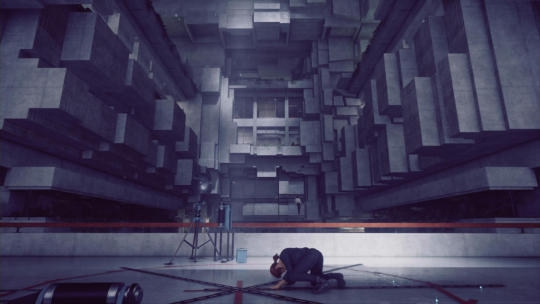
Referring to the FBC headquarters as a house is a bit misleading, though you’ll grow to understand how in time. In practical terms, it is a massive multi-story facility that screams government, with angular interiors formed in stone and metal, with minimal flourish. It has the outward appearance of an orderly place of process, which, while true, undersells the reality therein, or the lack thereof.
The dance between fact and fiction is at the heart of Control’s setting and a fascinating narrative that unravels in Jesse’s mind through a series of inner monologues and psychic projections. There are exchanges between characters that move certain elements forward, but so much of Control hinges on Jesse’s discoveries and her interpretations of their meaning. Even though you’re clued into her thoughts, there’s an underlying element that Jesse fails to explain because, to her, it’s matter-of-fact. Whatever it is has always been a part of her, creating a gap of understanding that you, for the most part, can only hope to fill in with your own inferences. There’s a constant desire to know more, yet to also maintain distance from the truth in order to preserve the mystery. It’s to Control’s credit that it effortlessly facilitates this exchange.
If it’s otherworldly, if it seems to defy explanation, odds are the FBC is running tests to discover the underlying cause and contain the consequences from the outside world. Deep within the guts of the house lie experiments and studies that dig into paranormal disturbances, the collective subconscious, and alternate dimensions. The FBC posits that entities from beyond our realm have used objects of power–archetypical things that we know and take for granted–as gateways into our world. After years of the FBC gathering these strange objects for study, the house has become an amplified conduit for a force known as The Hiss, which can reshape and move matter. The source of this power, a dimension known as the Astral Plane, has crept into the bureau, and some far-off corridors bear its telltale monochromatic, geometric motif. Occasionally, you will get pulled into this strange world to undergo skill trials, but your visits are always short, which helps preserve the mystique in the long run.
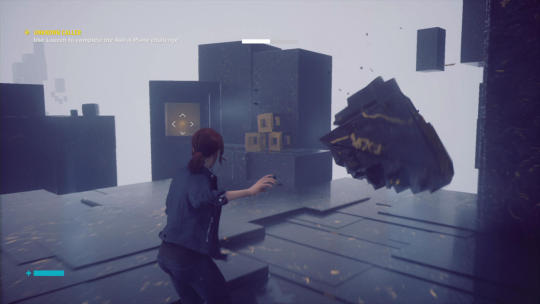
Back in the “real” world, lowly agents and high-ranking FBC enforcers have been corrupted en masse. Many float harmlessly in mid-air, chanting strange mantras in boardrooms, hallways, and research facilities. Generally, if there’s headroom, there are floaters. The more aggressive of the bunch pop into existence before your eyes as you explore the bureau. They, like Jesse, fight with a mix of guns and telekinetic powers. They are generally fun adversaries, and battles are punctuated by some incredible special effects. Furniture and small props are whipped into a frenzy when you hurl a desk from a cubicle and into a group of enemies. Sparks and colorful plumes of energy fill the air when a nearby explosion cuts through the incandescent trails left behind by the hiss.
There are only a few unique enemies or bosses to speak of, but by and large the AI, in conjunction with a great variety of architectural layouts, makes every fight feel engaging. Whether a simple encounter or a complex assault, you have to approach combat with a juggling act in mind, shifting between expending ammunition and psychic energy when one or the other is depleted. You also have to learn how to defend against and recover from harm. The only way to heal in combat is to pick up essence dropped by fallen enemies, which often requires you to throw yourself into the fray while also protecting yourself from further damage.
New powers come with story milestones, but weapon forms are crafted from collectible materials. Their stats, and Jesse’s, increase with the application of randomized ranked mods dropped by enemies and found in hidden containment chests. You will likely come across hundreds of mods, but because you can only hold and use a limited amount, you will end up dismantling most of them to make space in your inventory. Mods can make a tangible difference, especially once you start to find high-ranking ones, but they can’t make up for a lack of skill or understanding of Jesse’s tools during the game’s greatest tests.
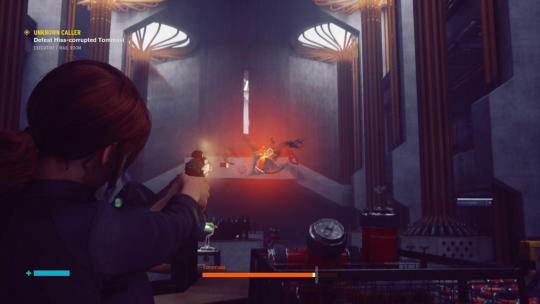
Gallery





Control is a great-looking game in general, from the overall art design to the technical execution, but combat is a notable standout in that regard. While the experience on PC can be tuned to run at a consistently smooth frame rate, the PS4 version (playing on a PS4 Pro with supersampling enabled) can exhibit stuttering when fights are at their most chaotic–no issues were spotted with the Xbox One version. This, thankfully, is an uncommon occurrence, but it definitely clues you in to how taxing the special effects and real-time physics are.
With a fair amount of extracurricular exploration, it took me about 15 hours to get to the end of Control’s campaign. Though I watched the credits roll, there are still plenty of side quests for me to tackle. Jesse isn’t the only sane person in the bureau after all, and the handful of key NPCs that populate each sector have co-workers gone missing or projects left abandoned that might put the bureau at future risk. They not only give you more reason to spend time in Jesse’s shoes, but the supporting cast is great across the board, brought to life with excellent voice acting and top-notch character design. They aren’t deep characters and your conversations never go very far, but I’m more than willing to help them in their time of need, if only to see what quirky or oddball thing they say when I return.
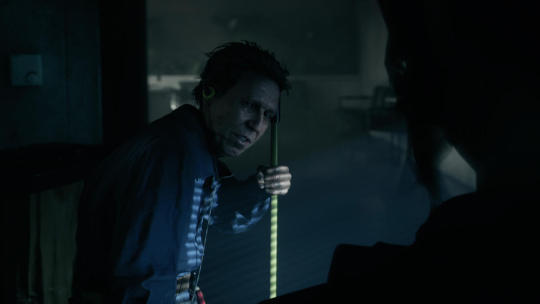
One of my favorite aspects of Control, now that I’ve got room to breathe, is spending quality time with its collectible texts and videos. I’ve managed to read most of the in-game materials while pushing through main missions and tackling optional pursuits, but there are so many fascinating threads to pull on that it’s easy to imagine new possibilities lying in wait; if only I studied the evidence a little closer, or considered a new angle, maybe the missing pieces of Jesse’s story would come into view. These tidbits can be educational, disturbing, and at times wildly entertaining, and they have inspired me to look deeper into topics like Jungian psychology.
It’s not often that a game invades my thoughts the way Control has. I’m at the point where I want to consume every last thing it has to offer. And if I’m honest, it also makes me want to go back and replay Remedy’s past games, too. Sure, it’s a faulty metroidvania in some respects, but there are so many exceptional qualities afoot that Control handily deflects any momentary ire. I can’t wait to take part in discussions about the game, to see what others have figured out, and to better understand where it all fits into Jesse’s story.
0 notes
Text
The Great North Wood

December 2016
Here is the article that we wrote for PMLD Link. It says a little more about the work I do with Emmie and Keith as Sound Tracks.... (Coralie too but she is working hard as a Speech and Language Therapist at time of writing :))
SOUNDTRACKS AND THE GREAT NORTH WOOD
Sarah Glover, Emmie Ward, Coralie Oddy and Keith Park have formed a collective – Soundtracks - to provide multi-sensory storytelling, poetry, music, song and dance workshops for adults with severe and profound and multiple learning disabilities on the theme of The Great North Wood
Sarah writes:
The Great North Wood History
Oh the trees grew all around, even in, your own home town…
I first found out about The Great North Wood when studying for my MA in Museums and Galleries in Education. I was researching the history of Crystal Palace Park for various projects, which included the creation of a community audio trail. During my research, park and parish boundaries were frequently mentioned and there was talk of the ‘Vicar’s Oak’ that once stood on the triangle. Looking at area map excerpts through different time periods I became intrigued by the time before the palace and park and in particular with John Roque’s 1746 map of London. I found a copy of Roque’s map in Lambeth Archives and this map clearly marks ‘The Great North Wood’ in large lettering over Norwood and Dulwich. Having lived in West Norwood off and on over the years I had had no idea of the name’s origin. If ever you get the chance to take a look at the map, you should!
I can not confess to be the most knowledgeable person on The Great North Wood. The London Wildlife Trust are a good source of information and they are currently working on a Heritage Lottery Funded project on the theme. The trust manages areas of land which include remnants of the wood that you can visit today, such as Sydenham Hill Wood. I am fascinated by the wood and the stories it holds. I am particularly interested in the mix of tangible and intangible history of the area and I am passionate about helping to make local heritage accessible to as many people as possible. Key aspects of life in The Great North Wood are used as starting points during the sessions – the nature and characters of the wood. We have always left these aspects open for development during the sessions – and the learning has been for us as project creators as much as for the students.
We are beating, beating, beating the bounds… we are beating, the bounds…
The Great North Wood once covered most of South London and stretched from as far as Deptford to Selhurst. Many clues about the area’s history are in names – area and street names such as Vicar’s Oak Road. The wood was centrally made up of Oak trees, and boundary oaks such as the Vicar’s Oak (that no longer stands) were important landmarks. People would have visited these oaks when taking part in the annual tradition of beating the bounds. From what I have heard, this was when the parishioners walked along the lines of their parish boundaries to make sure that they asserted which land was theirs. We celebrated the beating of the bounds in our April session. This included using real sapling wands and processing around a symbolic (hand drawn) tree while singing a song we created.
Have you seen Margaret Finch? They call her the Gipsy Queen….
Names continue to tell a story, such as Gipsy Hill, which refers to the gypsies who once held summer encampments in the area. The most famous of these gypsies was Margaret Finch who was given the name ‘Queen of the Gipsies’. Day trippers from all around visited the gypsies, apparently including Samuel Pepys’ wife, Elizabeth in 1668.* The thought of excited day trippers going to have their fortunes told and and the festival feel that must have been provided us with lots of stimuli for songs, drama and music on the theme.
Stand and deliver, your money or your life…
I am familiar with The Highwayman being taught in schools from when I working as a teaching assistant in a school. We didn’t use the poem in this project. However, the highwaymen who would have roamed The Great North Wood were the first characters we introduced. The drama developed during the sessions. Sometimes we were all the highwaymen and sometimes one or two highwaymen and highwaywomen collected treasure from the rest of the group. This was supported by song and the words: ‘Stand and deliver!’
The plants and animals of the Great North Wood have been a theme throughout all of the sessions. Nature has been fundamental to the sensory storytelling and interactive storytelling. To date we have used more general animals and plants that could be found in woodland, but there is a huge scope for developing around nature particular to The Great North Wood.
The Great North Wood Sensory Stories
It was a long time ago...
I was first introduced to sensory stories at a day workshop with Joanna Grace at a Diversity in Heritage Group meeting. I had always been interested in how to make museums, galleries and heritage sites more accessible and had a fair amount of experience in education and disability. However, this was the first time that I learned about a clear, practical, interesting and instant way to get started. I then attended a training weekend with Joanna Grace. As well as learning more about developing and telling sensory stories, I also met Coralie Oddy. Coralie also had an interest in The Great North Wood and we resolved to write a sensory story on the theme.
It was the time of The Great North Wood and the trees grew all around....
Sensory stories are usually made up of about ten parts/sentences and throughout the story you try and cover as wide a variety of senses as possible, so that each sentence has a sensory experience connected with it. Our sensory story was the starting point for the themes we covered and continue to use during the sessions. We first thought about what we could use to represent the wood itself. We wanted to create the feeling of immersion in the wood and Coralie had the idea to use a hoop with leaves that dangle from it. We could then place the hoop over the heads of individuals so that they would truly be immersed in the leaves. The hoop proved helpful in creating a special atmosphere in the sessions. It helps us begin with a sense of calm and familiarity. This, combined with Emmie's beautiful flute playing means that there is a mystical feeling of being transported to the wood.
The trees grew flowers which bloomed and turned into rich, juicy berries...
The theme of woodland has given us a bountiful amount of ideas. Sensory stimuli are used throughout the story and the whole session. However, in each session at some point in the story there is a prolonged period for sensory exploration. We take around a variety of stimuli to participants and while introducing people to the different items we also observe what interests and simulates enjoyment. Items are mostly inspired by the workshops with Joanna Grace and include visual stimuli such as laminated pouches filled with coloured water and small objects; as well as touch stimuli of gak and various kinds and water beads in water. We always have a couple of scents on offer.
Coralie writes:
Highwaymen hid in the woods. You could hear the sound of horses hooves and running feet….
Gaining an understanding of what different individuals respond well to (or perhaps do not enjoy) has been really important for developing the sessions. In one group, we found that a wide circle arrangement was important to give some individuals space, whereas another group developed a real sense of intimacy by having the story circle brought tighter. Some individuals have developed their confidence in participating by being offered the chance to add extra sensory layers to what is now a familiar story (such as using clapping sticks to create a ‘tick tock’ sound during the part of the story ‘It was a long time ago…’). Others have shown subtle signs of greater engagement as the weeks have progressed. One visually impaired individual who found noisy stimuli difficult really benefitted from experiencing the story in terms of different kinds of touch on her arms and hands – light tapping fingers for rain fall, for example. It also gradually supported her to engage more fully with other sensory aspects of the story – she was happy to smell differently scented gels and hand creams when used within the context of hand massage, and matching speed and intensity of touch to music being played seemed to increase her tolerance of these sounds. Another individual who tended to wander and rummage through people’s possessions during the sessions was able to have her needs met and be included within the ‘action’ of the story by having leaves scattered in front of her, which she carefully picked up and placed in a bag for us to scatter again. Following and accepting the preferences of individuals has been helpful in supporting them to try new sensory experiences. Experimenting over time has been key!
Emmie writes:
I have recently completed my PG Cert in Sounds of Intent (Adam Ockelford 2008) at Roehampton University. Originally designed to enable children with PMLD to access music,
Sounds of Intent 'maps' musical behaviour and development and divides musical expression into three distinct but interdependent areas: reactive ( listening to music), pro-active ( making music) and interactive ( making music with others). It emphasises an individual approach to musical expression in which the student is guided along at their own pace and direction.
Our aim in the sessions was to provide an array of interesting sounds for people to listen and respond to. This included the words in the stories, the rhythmic call and response of Keith’s poems and chants as well as instrumental music and songs and soundscapes to create the atmosphere of birds singing in the woods or wind blowing through leaves. When working with students with PMLD who might not be aware of sound as a separate entity its important to try out lots of different sound experiences and observe their response. One of the most important sounds for them to hear is their own vocal sounds. With this in mind some of the songs in each session are adapted or purposely created to include vocalisations, which everyone sings together. Students also consistently respond to hearing their name so we use their name not only in hello and goodbye songs but in songs that relate to parts of the story as well.
Its really important to make sure that sound is as different as possible from the background noise many of our students experience in residential homes where the tv or radio can be playing almost constantly. To do this, we have to bring the music over to people and sing and play close to them accompanied by lots of engaging eye contact, expression and a “live” sound. I also make sure that I provide lots of drama and contrast in playing quiet, louder, slow and faster and that there is a variety of sounds created from a range of instruments and voices to create changes in “timbre” Stops and starts are also utilized to create drama and to remember that “silence can be as important as sound!” ( soundabout)
To help students with PMLD make sounds using instruments, body or voice ( pro-active domain) we initially reflect back involuntary sounds to highlight awareness of them, if the student is not making sound intentionally. The next step is to find accessible ways to make sound and to enable people to have as much control in doing this with minimal support. We have lots of different instruments so people can experience the soft and resonant sounds of djembe drums or the pure metallic sound of a tone chime. We have lots of small shakers and hand held percussion instruments that are easy to hold and string them on to belts if the player does not want to hold the instrument for too long. This way it can be held and released at the players will. For tuned instruments we’ve had great fun with a small child’s accordion and playing guitar chords on garageband on the ipad.
Our students with PMLD have different musical preferences and we constantly review how we can accommodate their needs within the class. Some students find it very difficult to relax within the class unless there is some music. For other students especially with sensory processing issues we have to be aware that loud sounds can be distressing and we have to make sure the volume of the music does not become too loud. For some students ( as Coralie said) experiencing touch stimuli enables them to more readily engage with the music as it seems to provide a focus that grounds them and allows them to enjoy listening.
The real joy comes in making music and sound interactively and Keith’s poems and chants do this beautifully. Working with Keith has inspired us to look for call and response songs and to create our own songs within which there is turn taking between music makers and a rich musical conversation emerges. It’s really important to leave time and space to as Keith says to “see what happens” and be ready to respond to our students and allow their input to flourish.
During the sessions we have learnt to look for “magical moments”. One of these was when we sang: “come and gather” a “campfire” song (written by Sarah) where we all sat close together in a circle around a flickering fire on the ipad. Something about the closeness and swaying to the music created a wonderful connection and calm between everyone. Another was when we marched around the room chanting and holding birch wands and re-enacting the ancient tradition of “ beating the bounds” There was a feeling of excitement and energy amongst our students. Is it the music, the movement, proximity to one another? We’re still figuring it out but when these moments happen we know we’re on to something good!!
Keith writes:
Our aim is to bring music, song, poetry, dance and storytelling together in a creative and accessible format for adults with severe and profound and multiple learning disabilities. Both Sarah and Emmie are singers and musicians with a vast knowledge of folk song. Sorted!
And here, as a taster, here is our chant of The Great North Wood. This can be performed as a poem using call and response but also as a circle dance, as the words suggest, or as both together. Emmie has set it to music, so it is now a song: and so then, of course, we can perform it as a song, a poem using call and response, and a dance, all at the same time. We have also had guidance from British Sign Language users and teachers so in addition the chant is signed. An interactive poem, sung to live music, danced and signed at the same time.
A Guardian reporter, should one ever come and join us, might describe the workshop as an example of ‘Gesamtkunstwerk.’ We just think of it as putting it all together.
The Chant Of The Great North Wood
If come you can
Then come you should
To join us all
At the Great North Wood
Hand to hand
Each to each
We dance around
The copper beech
Eye to eye
So we can see
Us dance around
The old oak tree
If come you can
Then come you should
To join us all
At the Great North Wood
Side by side
Come and go
We dance around
The mistletoe
Toe to toe
You and me
We dance around
The rowan tree
If come you can
Then come you should
To join us all
At The Great North Wood
Circle dance
Beneath the sky
Our circle
Has no I
Root and tree
Flower and leaf
The Great North Wood
Beyond belief
If come you can
Then come you should
To join us all
At The Great North Wood
Anyone wanting more information on The Great North Wood is welcome to contact [email protected] or by twitter at @Soundtracks16
0 notes
Text
Billy Elliot review
Billy Elliot is a British social realism drama/dance movie, directed by Stephen Daldry and written by Lee Hall. It was released in 2000 and the leading actor is Jamie Bell who embodies the character of William Billy Elliot, along with Gary Lewis who plays the role of his father Jackie, Jamie Draven as his brother Tony, and Julie Walters who plays Mrs Sandra Wilkinson, Billy’s ballet teacher as supporting actors. It is an inspiring tale of pursuing dreams, breaking conventions and stereotypes, and struggling. The plot of the movie is set in 1984-85 in a town on the north-east of England called Everington at the time of the coal miners’ strike.
The plot of the movie revolves around the titular character, Billy Elliot (Jamie Bell), who, after witnessing a dance class which was held in the same gym as his boxing class, he decides he wants do dance as well. The ballet teacher, Mrs Wilkinson (Julie Walters), sees something in Billy, a spark and stature of a true dancer, and wants him to continue practicing with the girls. This, however, does not bode well with Billy's father, Jackie (Gary Lewis), who thinks dancing is for girls and that his son should do what „lads do; football... boxing... or wrestling.“ Whether this conflict resolves itself, you'll have to see for yourself, but it is a fascinating portrayal of struggle, both Billy's and of the Elliot family. Speaking of his family's struggle, another plot that is unfolding throughout the movie is that of a miner's strike setting in a town of Durham County in which both Elliot's father and Elliot's brother, Tony (Jamie Draven), participate. Their struggle is that of an everyday family, and is what puts this movie into the social realism genre.
What really impressed me while watching the movie is how easily we can relate to, or empathize with pretty much all the characters. Billy is a kid who just wants to feel happy and free, and to do what he loves. His father and brother are good people, members of the lower middle-class who struggle with unemployment, and just want to provide a good life for Billy. Even Billy’s friend, Michael Caffrey (Stuart Wells), who we find out is gay is also a likeable character, and we can see that being gay is something that comes naturally to young adolescents, and the movie did not make a big deal out of it. The characters may find it odd, but they all quickly accept it. The situations in which Billy sees that Michael fancies wearing dresses and puts make-up on his face, or when he kisses Billy and when Debbie and Billy spend time alone in her room and she speaks of her parents not having sex, later on having an intense situation of their own, all show how children tend more towards accepting differences than the adults. It is seen everywhere in the world. Children and young adults are more open to experimenting and prone to accepting diversity in oppose to adults who are too bound by rules and tradition. Billy is stunned by seeing his best friend in girls’ clothes but he accepts it. He is teaching us all a lesson that we should accept people as they are without judging them. An interesting part of the movie is the discourse of what is masculine and what is not. At one point, Billy asks Michael whether it is better to be a miner or a dancer, questioning if he is doing not the wrong but the manly thing. His father and his brother, and the rest of the men in Everington are miners, raging on the streets during the strike, portraying the men who fight, who want change and do not fear anything. And then there is Billy, wanting to be a “swan”. Another aspect in the movie that I found interesting was that Billy did not have a mother, and that really influenced him. He was a young person, growing up surrounded by aggressive men. The only woman near him was his grandmother, but she could not take care of him because she could not even take care of herself (we see her wandering on the graveyard, not able to find her daughter’s grave). The only woman that helped Billy, and ultimately changed his future, was Mrs. Wilkinson. A woman with her own problems- not fulfilling the dream of becoming a professional ballet dancer and having marriage problems, decides to help Billy get away from it all, from the grim everyday in that town, people full of prejudice and no understanding for others.
When it comes to technicalities, the highlight of the movie is the superb acting by all of the actors, especially Jamie Bell, and when you add all the dancing he has done in the movie, you have to give the boy some credit. Since dancing is one of the key elements of the movie, the choreography team had a lot to do, and it all paid out wonderfully since everything is easier when you have an actor who already had dancing lessons beforehand. Staying true to the classic British cinema, the movie doesn’t have any special effects added to it, emphasizing the social realism in the movie. The colour palette of the movie might seem monotonous at times, since the movie is set in England, a country known for its rainy and bleak weather, but it adds to the atmosphere of the movie, and the struggle of Billy’s family. Another thing that added to the experience are the songs used in various scenes where Billy is dancing; “I love to boogie” and “Children of Revolution” by T. Rex, “Burning Up” by Eagle Eye Cherry, and many more, are a welcome treat to all music lovers, and it adds another fine layer to the character of Billy Elliot. They are all upbeat songs, made to make you want to dance, and you will definitely catch yourself tapping your foot or nodding your head while watching the movie.
This movie also deals with many social issues, such as difference between the classes (working class and the upper class), gender equality, sexuality, breaking stereotypes, etc. Billy’s father and brother both represent the working class, and the struggles of being expendable. Billy’s father even goes against his own ideals later in the film (working in the mines despite of the strike) in order to help Billy follow his dream. It’s a struggle many of us faced at least once in our life, trying to do the right thing while not knowing what the right thing is. Billy represents a noble notion of gender equality, being able to do what you want and love without being judged on trivial matters such as femininity and masculinity. When it comes to sexuality, I already mentioned Billy’s friend, Michael, is gay, and the movie does not make a big deal out of it. Sure, the reveal of it was strange for the characters, since they did not expect it, but they all learn to accept and respect it, especially Billy, who didn’t have any gripes with the fact.
All in all, the movie is fantastic and worth watching, and deserves all the praise it has received. I usually do not watch this kind of movies, but it is certainly a jewel in the British contemporary cinema. It stands as a timeless reminder that we, as human beings, need to learn to accept each other, and to celebrate diversity. I give the movie a 7.5/10 for its superb acting, and thought-provoking themes. If you like realistic everyday/everyman movies, where you don’t know whether the ending will be a happy or a sad one, this is the movie for you. If it isn’t your type of a movie, it is still worth watching, as it will not leave you indifferent.
Sources:
Billy Elliot. Dir. Stephen Daldry. Writ. Lee Hall. Perf. Jamie Bell, Gary Lewis, Jamie Draven, Julie Walters, et al. Universal Pictures, 2000.
2 notes
·
View notes
Text
41 tools to write (and critique) effectively
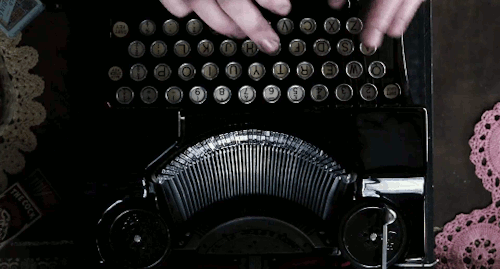
When refining, rewriting, editing and critiquing, what should you be looking for? Sentence structure? Character believability? Setting? Sometimes it can be a bit much to keep everything in your head, so I’ve written the following list of things I look for (or need to remind myself to pay attention to) in order to make my writing, and my critiques of other writers, as effective as possible. Hopefully it works for you too.
Style
Is sentence length varied?
Do sentences flow naturally?
Is the information being communicated accurately and effectively?
Do sentences start and end with strong, evocative words?
Are long, wandering sentences used effectively, or should they be broken into shorter, punchier and easier to follow ones (depends on the situation. Long is good for lists and important points. Short is good for immediacy and impact.)
Are there too many -ing and -ly words bunched together (happening, doing, jumping, running, happily, excitedly, remotely)? Too many of these words weaken prose.
Are there semicolons? Rip them out.
Are there parenthesis? Can they be justified? If not, rip them out.
Are the colons? Can they be justified? If not, rip them out too.
Are two words used where only one will do?
Are there phrases like ‘in fact’, ‘there was’, ‘she had said’, etc. Rip those out.
Are the words on the page interesting in themselves? Trade common words and phrases for unique ones. Make the familiar unfamiliar and the unfamiliar familiar.
Is the same word used twice in a paragraph? If so, there better be a reason for it. Clarity and rhythm are good reasons, lack of vocabulary is not.
Does it read like I spent all my time looking at a thesaurus? Simplify.
Can a dumb reader make sense of your complex ideas? Consider simplifying your explinations.
Does a smart reader feel they’re being talked down to? Make your ideas bigger.
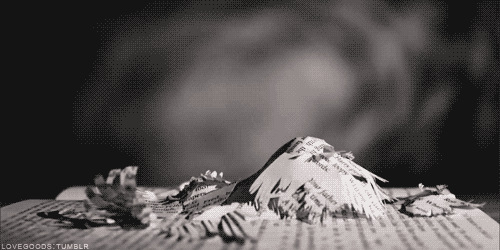
Descriptions
As a reader, can I inhabit the scene with the information given?
Are all the senses engaged? Can the prose make a blind man see or a deaf man hear? If not, add more.
Is the flow of narrative slowed by an overabundance of description? Pair it down or rearrange it.
Are the details portrayed in logical order?
Are descriptions of everyday things lending value? Again, make the familiar unfamiliar and the unfamiliar familiar.
Characters
Do we know the character enough to justify the current scene?
Does the characters actions make sense from the characters point of view?
From reading the current scene, can I imagine how the character might behave in a different situation? If not, the character is not as well defined as it should be.
Can I picture the character in my head? If not, add more description and do it early.
Does character speech feel natural. Read aloud.
What mannerisms does this character have? Do they have a tick, a habit, or feature that sets them apart?
What does each character want? How badly do they want it? What are they willing to do to get it?
Do character actions reveal something about the character, or are they superfluous?
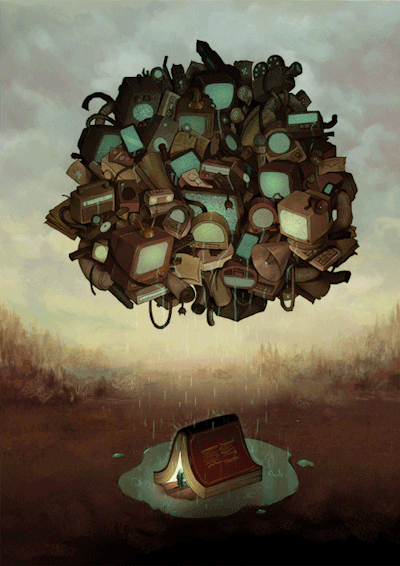
Scenes
Is the current scene vital? Justify it, if you can’t, cut it.
What is the purpose of this scene? Furthering plot, building character, etc. Every scene should do what it does well.
Does the current scene feel familiar? Is it familiar to another scene in the work, or familiar to something from somewhere else? If so, there better be a really good reason.
Where is the tension / suspense? (from wikipedia: Suspense is a feeling of pleasurable fascination and excitement mixed with apprehension, tension, and anxiety developed from an unpredictable, mysterious, and rousing source of entertainment) How many layers of tension / suspense are there? More on this next.
Is there a basic level of tension? If there are two characters, they should each want something different. If characters have the same wants, then something should get in there way. If life is easy, then the read is boring.
Is there a middle layer of suspense? Something else above the immediate scene should be looming. Something outside of the characters current control.
Is there a grand level of suspense? There should be a singular overarching thing that drives the story, gives it a time limit, forces the characters to make difficult choices again and again. If it’s a villain, it better be a damn good one.
Cohesion
Can each scene be explained in one or two sentences? Hone them.
Can each chapter be explained in one or two sentences? Hone some more.
Can the entire plot be explained in one or two sentences? If not, focus, hone, find the heart of the story and throw the rest away.
Is the word count justified? The entire reading experience should feel tight, even if it’s 200,000 words or more. If there is a moment of boredom, cut cut cut.
In the end, am I fulfilled but wishing there was just a little more. Perfect, time to start the next book.

3 notes
·
View notes
Text
Hellraiser as a Horror Fairy Tale
So for a while now I’ve been struggling to come to a clear, concise take on what I feel the classic Hellraiser’s are actually trying to be about. There’s a lot of themes here that are easy to emotionally grasp, but it’s been a bit of a struggle to try and build a coherent logical analysis on what all of these layers are conveying when properly understood all together (let alone figuring out how to verbalize what I was seeing). This is going to be a MASSIVE post, so buckle up for a long ride.
This has been especially frustrating because so many people have already asserted so much. There’s a lot of analysis out there that feels very unfocused and vague, or focuses far too much on very specific aspects that someone has isolated, like the unsettling theme of “pain and pleasure, indivisible.” The problem of course being that these aspects isolated like this are taken out of their full context, divorcing them of the very necessary emotional/psychological depth of the narrative, resulting in a rather simplistic, confused, or vague understanding of what kind of story we’re actually being told. This is problematic because it’s very clear that these films, the first two (and even three!) in particular, are deliberately using these horror elements as metaphor and analogy in a way very similar to traditional, dark and bloody fairy tales (see the outright fairy tale themes and references in H2). These are films that seem to function with a similar kind of gothic unreality that say, Angela Carter’s works do. And in any good fairy tale, a wolf is not a wolf.
Overall, I feel like the classic Hellraiser films are narratives discussing the nature of physical versus spiritual experience, the intersections thereof, and how this applies to the complexities of human suffering, trauma, abuse, etc. First, I should clarify what I mean by “spiritual.” I don’t mean “spiritual” in a faith/religious/superstitious sense, but as in humanity; in other words our personhood, the part of us that experiences emotion, empathy, craves human connection and emotional intimacy. So in turn, when I speak of “physical vs. spiritual,” I mean “physical” as the body divorced from it’s humanity. With me so far?
The first two films cover this this topic in different ways, with the second adding layers of spiritual complexity to the initial ideas laid out by the first film (and the third film, while extremely flawed, adds a few more intriguing elements that kind of bookend the themes for me), so there’s a lot of ground to cover. But hopefully, this will clarify my take on the themes of these films and how they suddenly became some of my favorite films of all time. I was actually quite surprised I enjoyed them so much, because I kind of expected something more akin to Nightmare On Elm St., or worst case scenario the subject matter would completely repulse and offend me, but instead I found something rather sophisticated and more fitting on the shelf where I put Cappola's Dracula, Labyrinth, Legend, In The Company Of Wolves, etc. It's much more like a gothic dark fantasy series than your general 80's horror franchise. I felt like I was watching a long-lost classic that nobody told me about, and nothing has really given me the same feeling I had back when I first watched all those nostalgic cult classics. Hellraiser 2 might even be ripping Labyrinth off a tiny bit, actually. If you're only familiar with Hellraiser because of the awful sequels (movies 3 to 9), you don't really know what the originals are like at all.
So without further ado, here’s my long-winded, [TOTALLY SPOILERIFIC, YOU WERE WARNED] analysis under the cut. ;P
[Warning for discussion of difficult subject matter from the films, including implications of past child abuse, attempted sexual assault, objectification of women (intentionally depicted, not as a failing of the films), allegorical kink-themed demons, etc. In the films It’s all imo presented rather tamely/tactfully outside of the over-the-top 80′s gore, but we’re talking a bit about all of this under the cut.]
I see the first Hellraiser film as dealing specifically with the evils of selfish, consumptive physical gratification, devoid of spiritual substance/humanity. Frank opens the door to Hell through a desire to reach new pleasures, because he’d exhausted all other avenues. He’s unsatisfied with what this world can give him, so he seeks out “the pleasures of heaven or hell,” he doesn’t care which. And I feel this speaks to what is at the heart of Frank, namely nothing at all. Frank is a being that exists purely for his own physical gratification. He is a textbook sociopath; essentially empty, devoid of emotional substance, and so he seeks to fill that void in him with physical pleasure. In that endless consumption Frank dehumanizes women; they become objects who’s humanity he disregards entirely. I’ve seen people try to call Frank a somewhat “sympathetic” villain (in the literary sense, not the ~redeemable~ woobie sense) even if he’s revolting, because apparently people can relate to his (and Julia’s) dissatisfaction with the banality of life, but Frank’s dissatisfaction comes from a place of spiritual emptiness. He is disconnected from his own humanity and the humanity of others, and so he wanders endlessly in search of the next base, physical high (so uh, personally, I find it hard to relate).
This is mirrored in Julia, who abandons the “emotional” roles of wife and step-mother in order to resurrect Frank, who gave her the physical gratification she holds above all else in her life, including her own morality and the lives of others. Julia is slightly more sympathetic because her dissatisfaction seems to stem from a sense of being pushed into traditional female roles that give her no fulfillment, so there are interesting elements of women’s oppression creating a human disconnect for Julia (particularly when it comes to the ways in which men dehumanize/use her). That said, I think it’s clear from Julia’s behavior across the board that her disconnect from her humanity is exacerbated by her obsession with the physical fulfillment she finds with Frank. There is an interesting line in the film from Frank, where he describes the relationship they have as being “like love, only real,” implying that he rejects the highly spiritual, emotional concept of “love,” as though he perceives what is purely physical as the only thing of real value. For Julia, I’d imagine that this has become a truth for her, because the traditional “loving” relationships of “wife” to Larry and “mother” to Kirsty brought her no fulfillment.
The men in general of the film seek this same selfish gratification - Julia seduces men home to feed to Frank, all of them seeking to consume her. You can see this underlying consumptive menace when the first man she drags home reveals his true colors, spitting angry words under his breath at her when she starts to seem hesitant. (it is interesting that she in turn is “consuming” them; they serve a material purpose to her that has nothing to do with their personhood. She’s feeding them to Frank, who literally consumes their life-force.) Larry also reveals a consumptive side when Julia tries to distract him with sexuality; she starts to shout “no!” (at Frank, who is looming menacingly in the shadows ready to strike at Larry), and it not only takes him way too many “no’s” to actually stop kissing her, he gets indignant at Julia’s “hot and cold” behavior, as if he was owed her body and denied. There’s little regard for her needs; he does not ask if something had hurt her, if she was okay, he only says with indignation that “he just doesn’t understand her,” rather than make any attempts at understanding.
H2′s Dr. Channard is another case of a consumptive soul, single-mindedly obsessed with his pursuits. However, unlike Frank, Channard’s obsessions are, for the most part, non-sexual. Channard has a sadistic, clinical fascination with the mind, endlessly consumed with a need for knowledge and discovery. But while Channard’s obsessions are focused in a mental space, it could be said that this too is a soullessly physical pursuit; he views the mind as an object to viciously plunder, and so human beings become objects for his purposes. So, like Frank, he is a character utterly incapable of empathy, humanity. The sexualized Male Gaze is unnecessary for dehumanization.
Despite all this objectification and abuse, despite the heavy underlying sexuality in these two films, they both seriously lack any Male Gaze whatsoever. In fact, all images of sexuality are pretty much entirely given to us from the perspective of women. There is a single exception of Male Gaze bullshit in H2, where there's a woman hanging topless for no justifiable reason in Julia's murder room, though you could actually blink at the right moment and miss it entirely (and we don't see a man or monster perpetrate violence against her, it's just Julia who promptly eats her). While Clive Barker directed the first film (and is a gay man), the second film was directed by Tony Randall (who is I believe a straight man), and it's things like that one little topless moment and the mild focus on Channard's enchantment with Julia that makes H2 lean slightly further away from H1's Male Gaze-less track record. That aside, Hellraiser 1 and 2 are rather unique for their time period in this way, because it's such a hard-hitting focus on women's experience of sexuality, or how women experience male sexuality in particular, which in Hellraiser is almost always predatory, un-self-aware, or in Steve and Kyle's romantic designs on Kirsty, a little bit too self-focused and limp. This is starkly contrasted with Hellraiser 3 and pretty much all Hellraiser films after it (particularly the constant callous objectification and violence perpetrated against women in Revelations, which surprise surprise, is the most recent film. Thank's modern cinema. Don't fucking remake Hellraiser you sociopaths). Hellraiser 3 was the first film to feature Pinhead committing violence agains a woman (that fact right there? that's fucking amazing for an 80's horror franchise. Especially one featuring these themes.), who in the moment is scantily clad and just had somewhat graphic sex with J.P., and the visceral and negative reaction I had to this dumb, cringey scene is very different than any of the reactions I had to the gore of the first two films. It's nothing too hard to handle (he rips her skin off with a hook in a bad effect and then the evil pillar eats her, so it's very gory but nothing shocking), but I mention it because the first two films really stand out as horror films that managed to deal with the abuse and objectification of women as a subject without actually objectifying them or showing us gratuitous, fetishistic shock-value surrounding that abuse, the way so many contemporary horror, thriller, and crime-procedural media does.
Beyond Frank and Julia, the other half of this story deals with Kirsty and the Cenobites. First of all, Kirsty is someone directly harmed by the consumptive, selfish gratification of both Frank and Julia - with Frank, there are fairly blatant implications of child abuse that may have occurred years prior (and if not, most certainly he intends on abusing her now). As for Julia, Kirsty likely wanted a mother figure after the death of her biological mother, and she was denied this emotional connection from Julia. Later, Julia becomes a direct agent facilitating Frank’s attempt at abusing Kirsty. Julia doesn’t seem to care who is harmed in the wake of Frank’s consumption, as long as she can still receive gratification.
Kirsty is the major character who breaks this mold of reckless obsession with the physical. All of Kirsty’s dilemmas are focused in a spiritual, human place. She lost her mother years prior and is still struggling with her grief. Her relationship with Julia is strained, so any hope of a mother-daughter connection after that loss has been entirely torn asunder for her. She loves her father dearly, but she’s just gained her independence and is dealing with worry over her father. Her father wants her to play mediator in his strained relationship with Julia, who she dislikes. She’s starting out a new relationship with Steve, possibly her first adult relationship ever. She’s dealing with either a secret abuse trauma and/or traumatized over Frank’s re-appearance and physical assault of her. Where Frank and Julia are obsessively absorbed in their need for physical gratification, Kirsty deals with many layers of spiritual/emotional realities, positive and negative.
The Cenobites, as we know them in the first film, are cosmic beings that exist in extreme, grotesque excess of sensory experience, far beyond any human comprehension of “pleasure.” All they truly understand is pain. Their function is to reap the souls who intentionally open Hell’s door and enact literal eternal torture; Hell consumes souls like meat to rend and tear (an interesting juxtaposition of flesh and spirit that I’ll discuss more when I get into H2). These creatures seem almost devoid of anything recognizably human in terms of emotionality (in the first film anyway), they are Borg-like. But again, a wolf is not a wolf. These beings, and Hell itself, are supernatural allegories for the human character’s dilemmas. In this film, they are the looming threat of eternal consumption devoid of humanity, given face. The oblivion on the other side of the threshold. You invoke their presence, they come at your call.
There’s more to say about how all this plays out in the first film, particularly when it comes to how Kirsty is the second person (after Frank) to summon the Cenobites and how she uses them against her abuser, but first I want to bring up aspects that are more prominent in the second film to pull this whole picture together (the films really are a “Part 1 and Part 2,” to me).
The second film (my favorite, if you couldn’t tell) focuses much more heavily on spiritual themes. It’s set almost entirely in either a mental hospital or Hell, respectively. So immediately, we’re given two pictures, one of a place of spiritual/emotional healing, and one of eternal spiritual and physical torment, the lines between the two blurring and distorting as we get further into the story. This is important because this film seems to focus much more on the experience of psychological/emotional trauma.
“The mind is a labyrinth,” Channard says, as he artfully performs a grotesque procedure on the brain of a patient. And so too is this reflected in H2′s depiction of Hell as an endless cthonic Labyrinth, where lost souls experience hallucinatory reflections of their traumas and vices, subjected to psychological and physical punishments eternally under the watchful eye of Leviathan, the “god of flesh, hunger, and desire.”
Leviathan as an entity is a rather interesting and ambiguous being. Certainly, it is a “god” of baseness and physicality, but it’s realm is made of psychological torment, perhaps more so than it is a place of physical torture. Whether you are a “good” or “bad” person is utterly irrelevant; if you are in Hell, your soul gets reflected back to you, often with a heavy focus on traumas of your past. For Kirsty this manifests in her childhood home and images of her mother, which begin bleed and transform into an image of Julia - and perhaps it manifests in Frank’s presence. Although according to Frank, Kirsty has stumbled across “his” little corner of hell which manifests “his” punishments, the first time I watched the film (before he explained where they were) I initially was convinced that behind this second door was another reflection of Kirsty, that it was another trial for her to face. It looked to be the exact same door as her own, and well, the writhing ghostly women under sheets seemed to be an image of sexual repression or fear of sexuality (the brief glimpse of the woman who Kirsty pulls the sheet off of has her hair, as well). Is this piece of hell reflecting Frank’s punishments, or Kirsty’s fears, trauma, possible repression, etc? Or is it reflecting both simultaneously? It’s still rather ambiguous to me, actually. But I digress.
The point is that there is this heavier focus on trauma in H2, where H1 was much more tightly focused on the folly of reckless, single-minded physicality without human connection. This focus on trauma adds a whole new layer of dimension to the narrative because “pain” itself is something much more complex, here. Here, it is revealed that the Cenobites were once humans, and that humanization of these creatures that were once presented to us as allegory and pure cosmic evil is very interesting. Rather than present the Cenobites as the ultimate culmination of personalities like Frank when consumed by Hell, it’s presented as if these Cenobites were perhaps relatively innocent people. Why then, do some people become Cenobites, while others stay as tormented souls? To me, the answer is still unclear. I'm not sure there actually is an answer, beyond the whims of Leviathan. (Channard is the obviously monstrous person who was changed, but he seemed to me to have been chosen as a tool in the moment and then discarded. ) That said, “suffering” itself is more than just the experience of physical pain; the psychological nature of hell implies that this is also internal suffering, and the Cenobites aren’t just entities there to enact physical torture. They are beings that exist in this eternal, perpetual suffering of all kinds, who speak of that experience as something sublime.
The Cenobites spend the majority of their time in both films popping up periodically to speak to Kirsty, from ominous threats of eternal torture, to invitation of joining them, to mocking her with insinuations that some part of her wants their world. For Kirsty, they are demons that reflect back to her all those fears and repressions, all her internal confusion and torment, which is what they spend most of their time doing in the first two films. In Hellraiser 3, there's more of this element of Cenobites as psychological reflections: Pinhead acts as a tempter, using the psyches of the humans he encounters to ensnare souls, which is why with J.P. he's literally consuming women, and for Terri, he switches gears to be the voice of female vengeance.
Earlier in the film, we are given multiple references to fairy tales, usually as used by older adults to mock and belittle Kirsty. The detective mocks her for making up fairy tales about “demons,” and Julia mocks her by comparing Kirsty to Snow White and herself to the Wicked Stepmother/Evil Queen. These side characters demoralize Kirsty in her idealistic efforts to rescue her father from Hell and fight back against forces much larger than herself that a more cynical person could scarcely imagine overcoming. Later, quite similarly to the west wing sequence in Beauty and the Beast (I think coincidentally so, Disney’s BATB came out a few years afterwards), Kirsty explores a dangerous place (Channard’s home) and finds an old, faded picture of a man who she recognizes as the monster she has previously encountered. Ultimately, Kirsty saves herself and another girl through an act almost unbelievably idealistic and naive, especially for such a dark story. She finds a way to transform a monster back into a human being. This was a victory won not with physical violence, but through humanity; a fairy-tale-esque triumph that flew in the face of those who tried to demoralize or deny Kirsty’s reality. Furthermore, this victory is not about the tragedy of Pinhead, but the triumph of humanity and empathy overcoming darkness.
There are a few expressions of human connection and empathy in these two films, like the care between Kirsty and her father, or the attraction between Kirsty and Steve, Kyle’s attraction and care for Kirsty, or Tiffany holding Kirsty as she cries over her father, But for me there was never quite a moment as striking and emotionally raw than when Kirsty and Spencer are looking at each other across the darkness once his human face is revealed. It feels like very artful, deliberate visual contrast to the circumstances and surroundings. But I digress.
So to clarify this picture: Kirsty is faced with monsters personifying everything that represented her trauma and fears, etc. They represented all-consuming physicality without humanity, they represented the things in herself she may have tried to suppress (sexuality, trauma, etc.). Monsters that wanted her to be as consumed by their world as they were. She then utilizes her demons to destroy her abuser, and later recognizes the humanity in her demons and transforms them, frees them from their spiritual and physical eternal torment, and in turn is saved from the same fate, herself.
The third film (which I enjoy despite the fact that it is admittedly a raging trash fire) features a cast of characters all dealing with similar situations. J.P. is our endlessly consumptive user, and Joey and Terri are two women dealing with spiritual trauma. Joey through the loss of her father, and Terri through a broken home life and later abuse at the hands of J.P. The reason why I include the third film in this is because of those additional elements and the insight it gives into Pinhead’s human self, Captain Spencer, and how he perfectly bookends the narrative. Spencer is another person who once opened the box, but it was never clear why he did so in the second film. In the third film, he explains that he was trying to escape spiritual suffering (war trauma/PTSD) through physical means ("forbidden pleasures,” aka kink). At some point he came across the box and opened it. While there are plenty of monstrous men in all three Hellraiser films, and Pinhead himself is a literal monster bent on taking any soul who opens the box with some form of desire in their hearts, my take away from H3 was not that Spencer himself was ever an abuser like Frank or J.P. (and indeed his behavior when lucidly himself in H2 and 3 is decidedly in immediate defense of women he cares about, up to and including two counts of total self-sacrifice), but that Spencer was perhaps pushing his explorations into unsafe realms of self-harming. He was punishing himself, and was thus made into a cosmic punisher of others by Leviathan. So, unlike Frank or Channard or J.P., people who are susceptible to the box/Hell’s temptations because of their need to endlessly consume, Spencer was susceptible because he was so effected by spiritual suffering that he turned towards unhealthy physical means of escape. In my mind, there is something in this idea of self-punishment/self-blame that is also potentially true of, say, Kirsty. How else would she be genuinely susceptible to the box (beyond basic desire having opened it initially), if not that she was teetering on a similar edge, herself? (However, I think perhaps her darkness also veers into a streak of sadistic vengefulness.)
This actually makes the extended cut of the H6 Pinhead/Kirsty reuinion scene a lot more tragic and distressing for me, because underneath all the bullshit, there’s this subtext of Kirsty still running from her Hell and yet still encountering consumptive, abusive men and being pushed off the deep end into untempered vengefulness and violence. And Spencer, who once was freed by her and in turn sacrificed himself to free her from Hell, trapped once more in his monsterous form and obsessing instead over dragging Kirsty down with him to be as endlessly consumed by her pain as he is within his own. No thanks on that grimdark noise, H6. ...but fucking wow, tho. If you've seen Hellseeker but have never seen the extended cut of this scene, I'm linking it Right Here. Warning for...just...ugh. Badly written infuriating creepy grimdark bullshit that genuinely sounds like a bad fanfiction writer wrote it. But at least you have that one moment right at the end where you can hear Spencer's voice come through to help her get free.
In conclusion, I think Hellraiser is a story about, well, Hell. But Hell not as nebulous place where the really bad people go, but Hell as an allegory for eternal spiritual suffering, that absolutely anyone can reach and be effected by once a gateway is opened for them. Particularly so when it comes to reckless physical indulgence, or consumption, or unsafe vice overtaking one’s humanity to others, or towards one’s self. So ultimately, the “moral of the story,” if you’d like to call it that, is that in order to protect one’s self from being consumed by spiritual suffering, one must cherish and cultivate their own humanity, and in the case of people who have been traumatized and/or victimized, one must fight back against the consuming force of that spiritual suffering through confronting the hell that exists within. Sometimes that doesn’t mean blasting the darkness away and ignoring it’s existence, it means reminding the darkness that it is only human.
[Regarding the content of the films, feel free to message me if you decide to watch them but you feel you need a total break-down of what to prepare for.]
#Hellraiser#This is my meta post for this weekend#some of you are not as keen on DW or are on it less often I know#so here you go my dudes#if you see me around too often call me out on it#Horror#Meta
7 notes
·
View notes
Text
MY TOP 12 MOVIES SEEN IN 2016
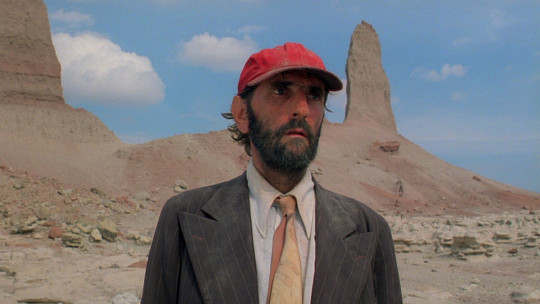
Here are my 12 favourite movies seen for the first time in 2016.
As you will see, the movies on this list are not restricted to movies made in 2015/2016. Rather, it is a list of films I watched for the first time in 2016, whether they were actually made in 2016 or 1951.
Here they are in chronological order:
1. A Streetcar Named Desire (1951) - Elia Kazan
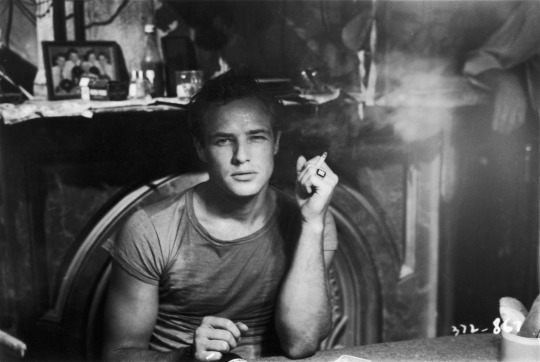
IMDB: Disturbed Blanche DuBois moves in with her sister in New Orleans and is tormented by her brutish brother-in-law while her reality crumbles around her.
This is a true classic. A masterpiece of drama and directing. This movie showcases why Marlon Brando is considered to be one of, if not the greatest, actors of all time.
2. Planet Of The Apes (1968) - Franklin J. Schaffner
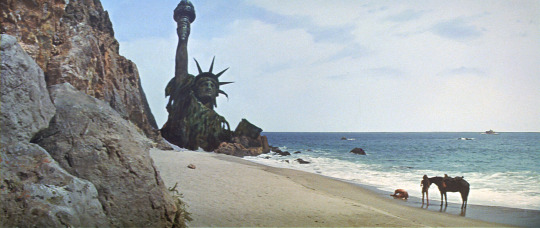
IMDB: An astronaut crew crash-lands on a planet in the distant future where intelligent talking apes are the dominant species, and humans are the oppressed and enslaved.
The original (and arguably the best) Planet Of The Apes movie. Even though it is now quite dated, at the time the ape prosthetics were of the best the world had seen. A great film of adventure, with a strong social commentary. As read on IMDB: “Times were rough, and the Vietnam War was growing in intensity by the time Planet of the Apes was made. Because of this, we see many references to the current dilemma. The film willy-nilly debates issues like hunting, violence, animal rights, evolution vs creationism, class structure, and nuclear war.”
3. Solaris (1972) - Andrei Tarkovsky
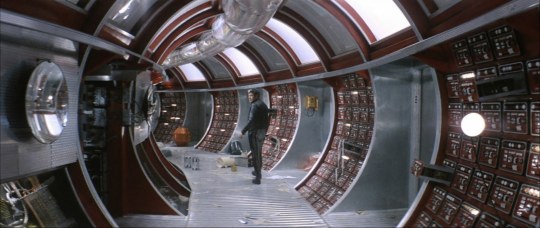
IMDB: A psychologist is sent to a station orbiting a distant planet in order to discover what has caused the crew to go insane.
This movie instantly became one of my very favourite films. It is long and slow and Russian, but there is something about it that has stuck with me since watching it. I was left in awe when the film ended. Not everyone will like this movie. Don’t expect a quick easy film to watch casually with friends. This is the type of film that you need to preferably watch alone and in silence. Give it the time and concentration that is deserves. Allow yourself to reflect while watching and it should affect you very deeply in a way that few films have the power to do. It is poetry in film form.
4. Paris, Texas (1984) - Wim Wenders
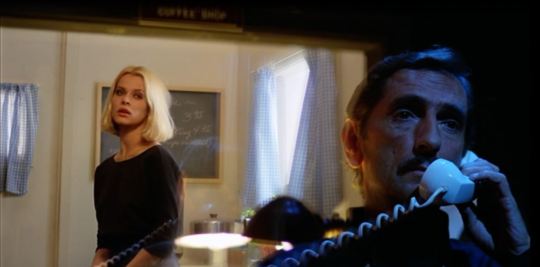
IMDB: Travis Henderson, an aimless drifter who has been missing for four years, wanders out of the desert and must reconnect with society, himself, his life, and his family.
This is a quirky film with deep, interesting characters. A beautiful story. The chat room scene is one of the most touching scenes I have seen, with incredible performances by both actors.
5. Gerry (2002) - Gus van Sant
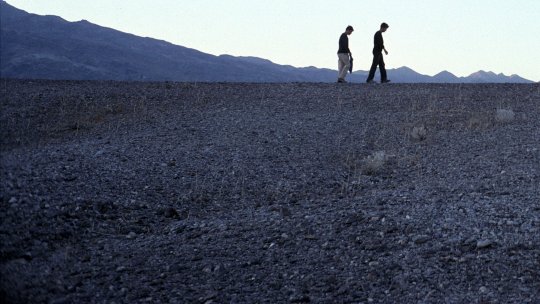
IMDB: A friendship between two young men is tested when they go for a hike in a desert and forget to bring any water or food with them.
A simple movie, layered with meaning. Even though there is not much happening other than two friends walking through the desert and talking, this film kept me captivated to the shocking end. The stark landscapes are beautiful. The drama is in their conversations and in the way their friendship subtly changes over the course of the film.
6. There Will Be Blood (2007) - Paul Thomas Anderson
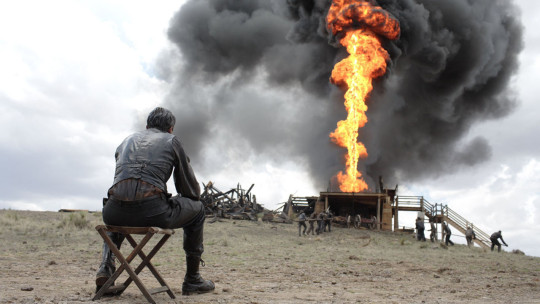
IMDB: A story of family, religion, hatred, oil and madness, focusing on a turn-of-the-century prospector in the early days of the business.
This is a truly epic film. I can’t believe it took me so long to finally watch it. Daniel Day-Lewis delivers an Oscar winning performance of what must be one of the most riveting, intense, unpredictable and terrifying characters on screen. He commands almost every shot. It’s an acting, directing and cinematic masterclass and a film that will keep you riveted for the entire 158 minutes.
7. The Assassin (2015) - Hsiao-Hsien Hou
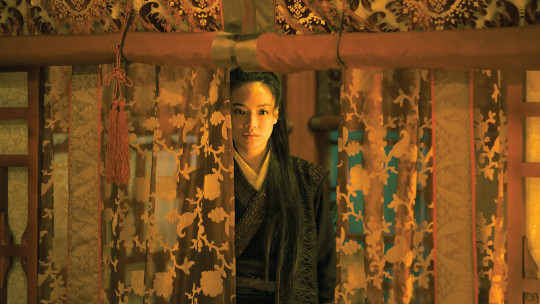
IMDB: A female assassin receives a dangerous mission to kill a political leader in eighth-century China.
This film is beautifully shot. The scenes are like classic paintings, starting with stark black and white and then later very vivid colours. The story line is a bit confusing at times, but that adds to the intrigue, mood and tone of this mysterious film.
8. Room (2015) - Lenny Abrahamson
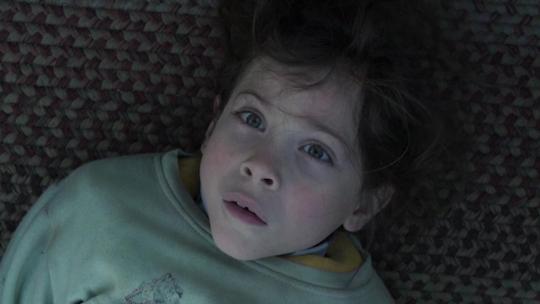
IMDB: A young boy is raised within the confines of a small shed.
Brilliant, human and touching. We see the world from the innocent eyes of a child who has been confined in a small shed for his entire life. Jacob Tremblay, only 9 years old at the time, delivers one of the best acting performances I have seen from a young actor. He sees only goodness, even though his environment is cruel, because of his mother’s love and protection. The descriptions of his first encounters with the outside world and how it appears to work, is very fascinating. He sees things as they are or should be, without understanding the seemingly petty issues of the adults around him. A message I got from this was how adults over complicate their lives and society.
9. The Revenant (2015) - Alejandro G. Iñárritu
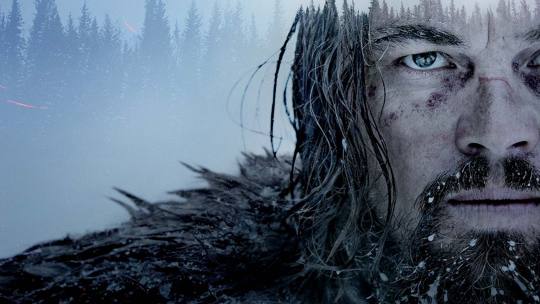
IMDB: A frontiersman on a fur trading expedition in the 1820s fights for survival after being mauled by a bear and left for dead by members of his own hunting team.
This is quite an obvious one. Leonardo DiCaprio finally won his first Oscar and director Iñárritu, won the Best Directing award for two years in a row (after Birdman in 2015), making him one of only three directors to win the award back to back. It is gritty and intense, with impressive long takes, alike to Birdman, that won Emmanuel Lubezki his third consecutive Oscar for Best Cinematography (Gravity in 2014, Birdman in 2015, The Revenant in 2016).
10. The Hateful Eight (2015) - Quentin Tarantino
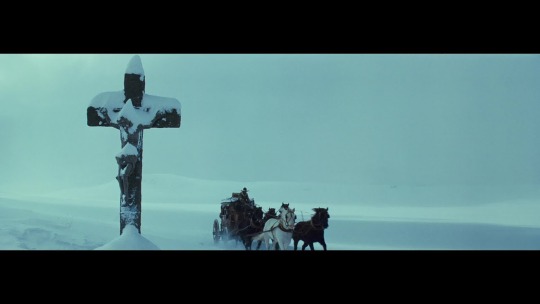
IMDB: In the dead of a Wyoming winter, a bounty hunter and his prisoner find shelter in a cabin currently inhabited by a collection of nefarious characters.
I have read mixed reviews about this film. Some found the slow start boring and lost interest. On the contrary, I found this captivating and suspenseful, as the story rises steadily towards its explosive climax. The opening foreboding score by Ennio Morricone sets the tone nicely and I was happy to see him win the Oscar for this. And as usual, the long conversations are highly entertaining. In the end, I think it might even be one of Tarantino’s most violent films. And that is saying a lot. Tarantino again displays his encyclopedic knowledge of cinema and its structures and styles and therefore uses this knowledge to toy with us. He incorporates old school mystery film conventions, with western, suspense, thriller, crime, drama and comedy all in one. In his eighth film, Tarantino again shows why he is the iconic director of our time and one that will live on long after he is gone.
11. Listen to Me Marlon (2015) - Stevan Riley
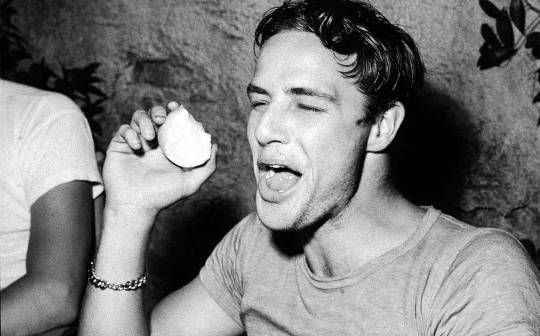
IMDB: A documentary that utilizes hundreds of hours of audio that Marlon Brando recorded over the course of his life to tell the screen legend's story.
As a fan of Marlon Brando, I loved this very personal documentary and the way it was put together. It is cleverly narrated by Marlon Brando himself, even after his death. This is because Marlon Brando kept an extensive audio diary, as a means of self meditation and reflection. Sometimes he speaks of things that will calm him down, often starting with the phrase “listen to me Marlon”. Other times he reflects on childhood memories, or experiences on set and in his highly public and private life. You start to see the man behind the icon and this makes it a fascinating watch, especially if you are a fan.
12. Noem My Skollie: Call Me Thief (2016) - Daryne Joshua
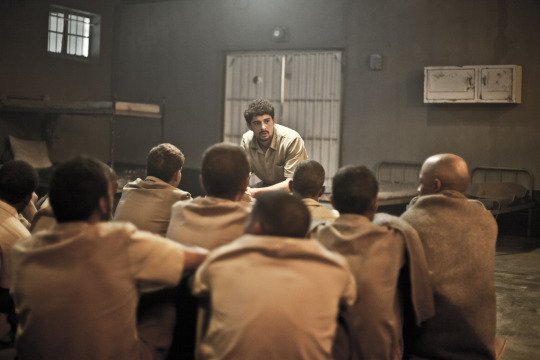
IMDB: A film based on the true life story of a young man who becomes a storyteller in jail.
This is South Africa’s official entry to the 2017 Oscars. When I went to go watch this film, I was not expecting much. I hadn’t heard of it yet (it was before all the Oscars hype). One of the only reasons why I watched it, was because none of the other films showing at the time really stood out, so we decided to support South African cinema. I was pleasantly surprised by a brilliant South African story, based on true events. The screenplay was written by John W. Fredericks, and it is his dramatic life story. The performances and production design are top class. It is filled with drama, real life cruelty and brutality, scandals, romance and humour. The ending left me shocked by the reality of it all, but it closes with a positive message. South Africa can be very proud of this one, whether it achieves anything at the Oscars or not.
THE END.
Thank you for reading and happy movie watching in 2017!
#top12#movies#2016#a streetcar named desire#planet of the apes#solaris#paristexas#gerry#there will be blood#the assassin#room#the revenant#the hateful eight#listen to me marlon#noem my skollie#elia kazan#andrei tarkovsky#wim wenders#gus van sant#paul thomas anderson#alejandro gonzález iñárritu#quentin tarantino#marlon brando#daniel day lewis#leonardo dicaprio#films#cinema
4 notes
·
View notes